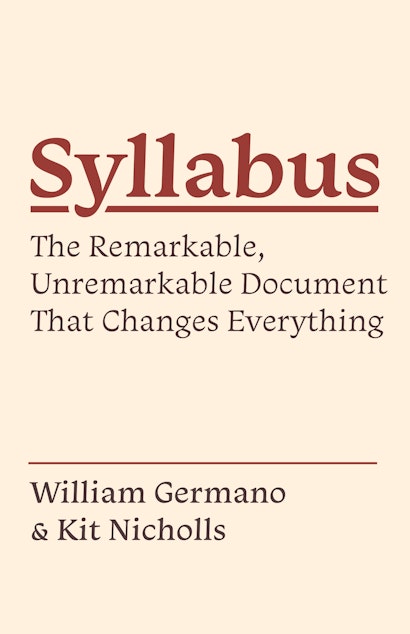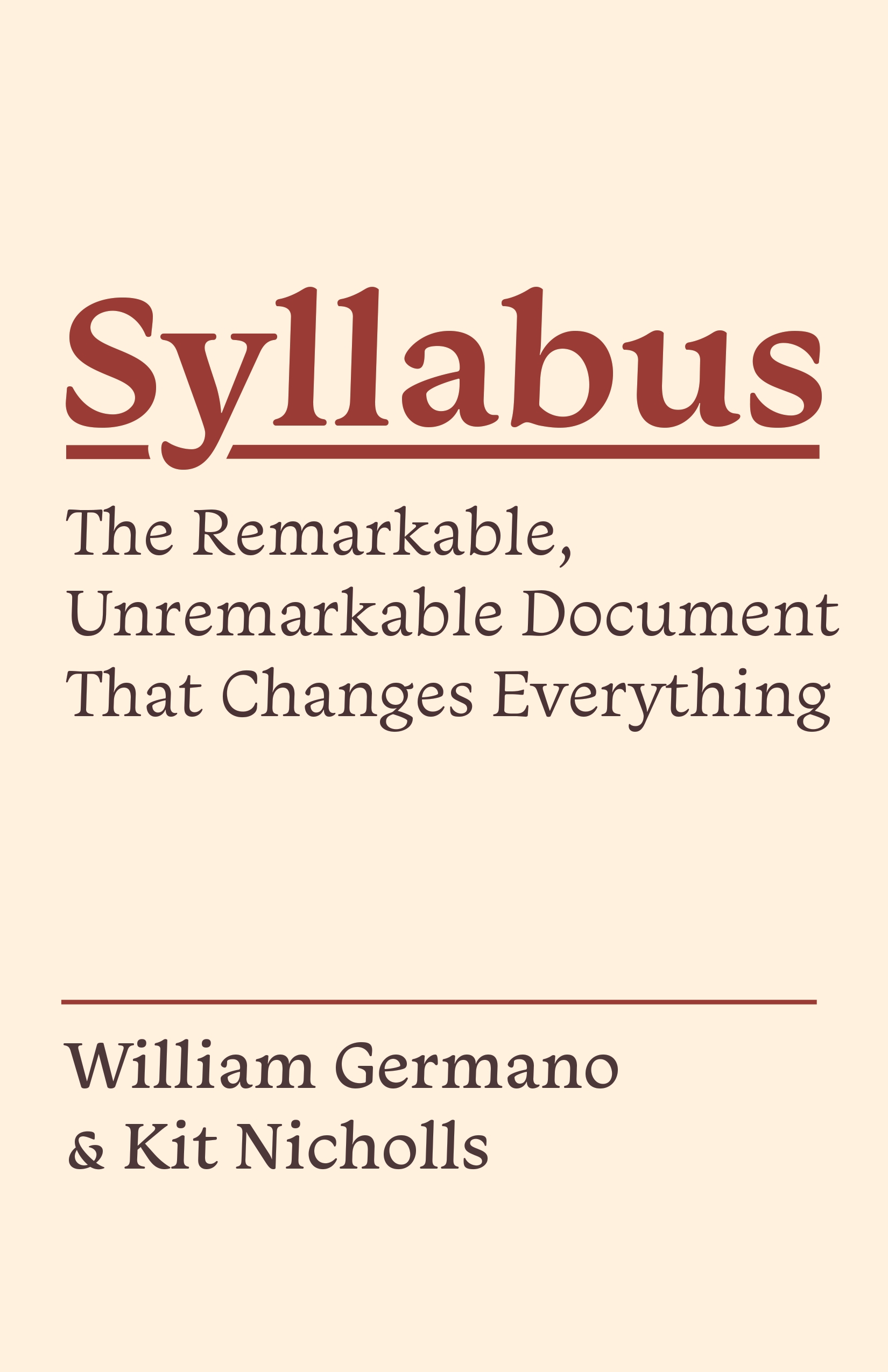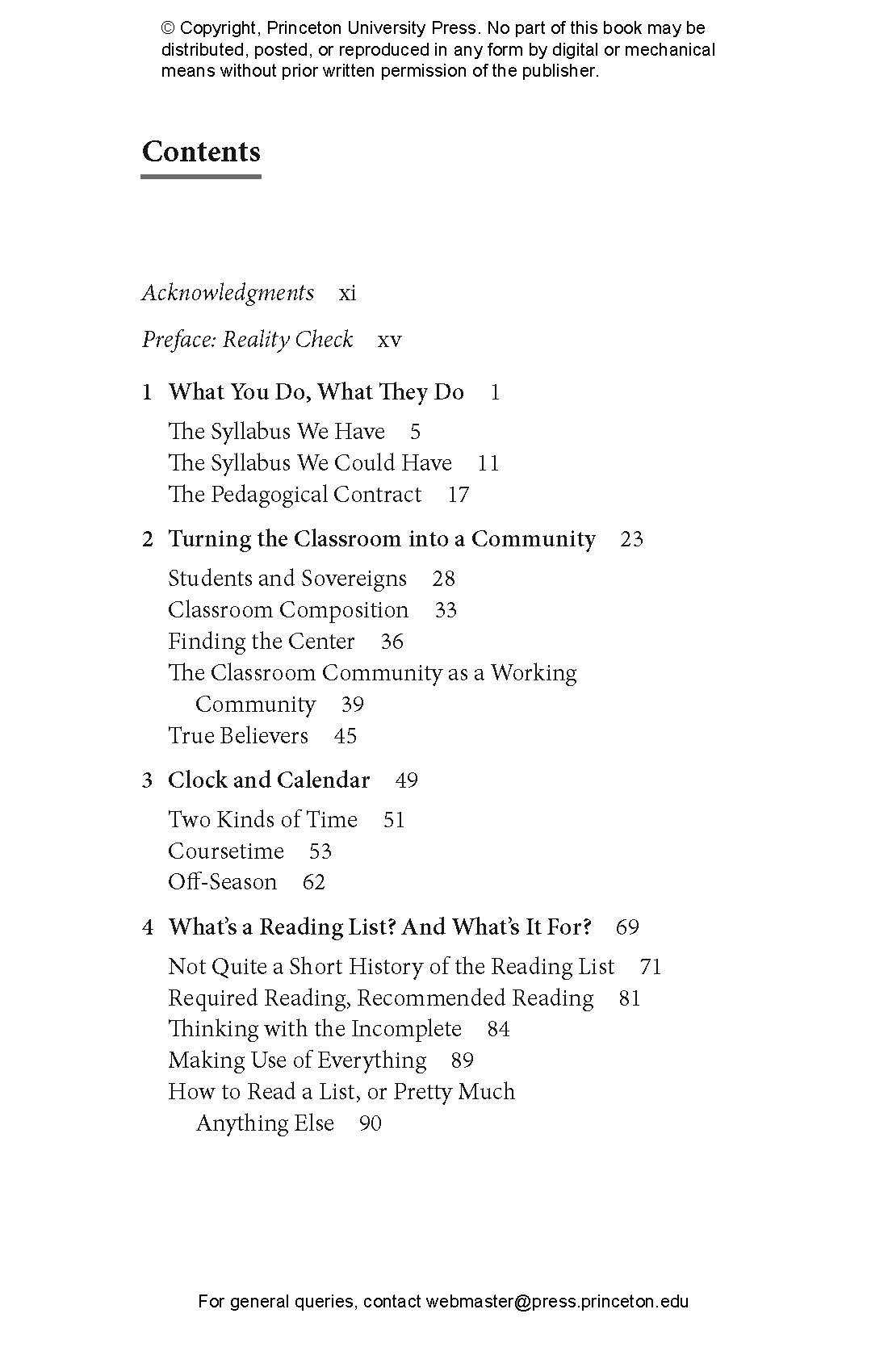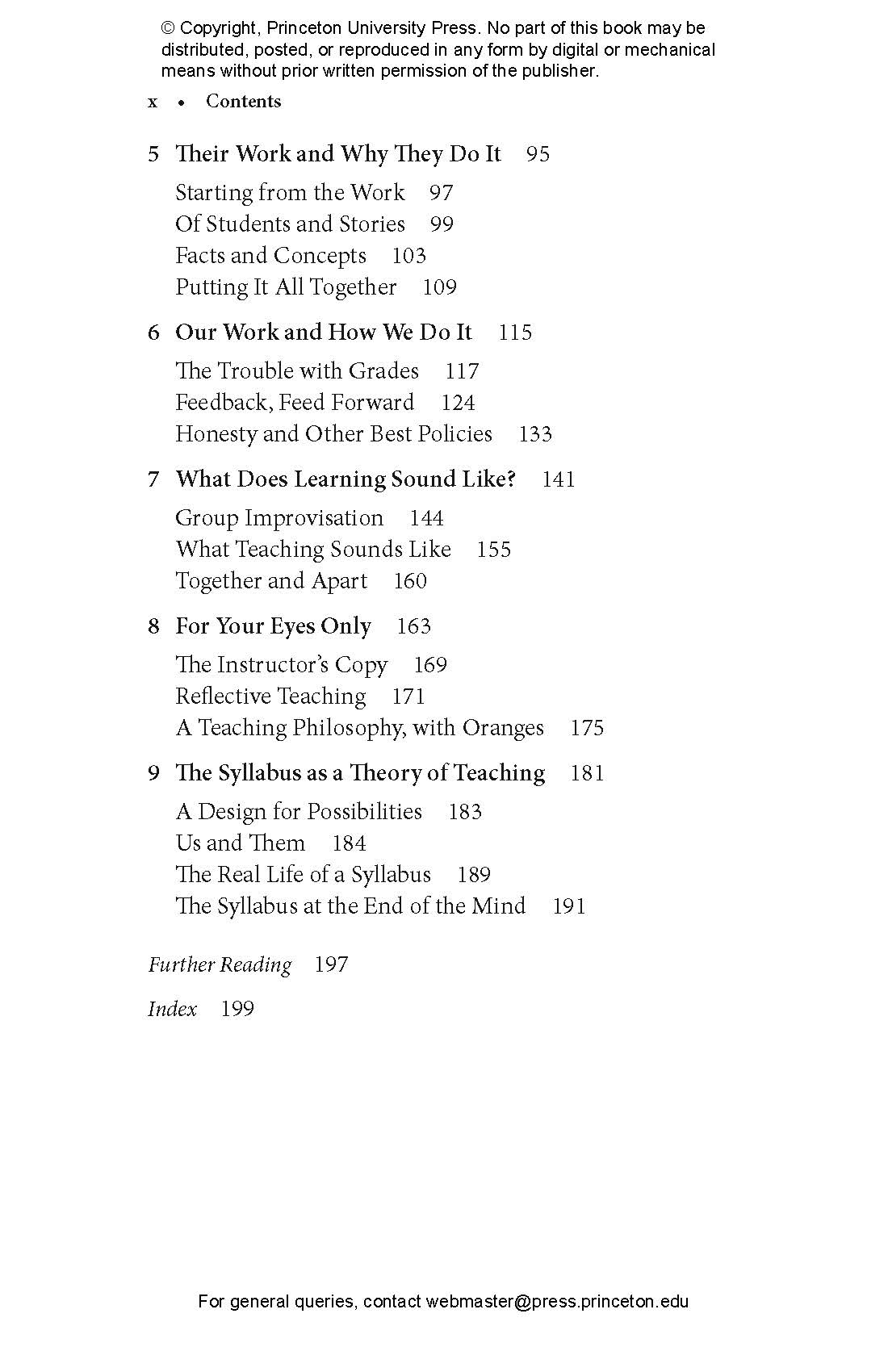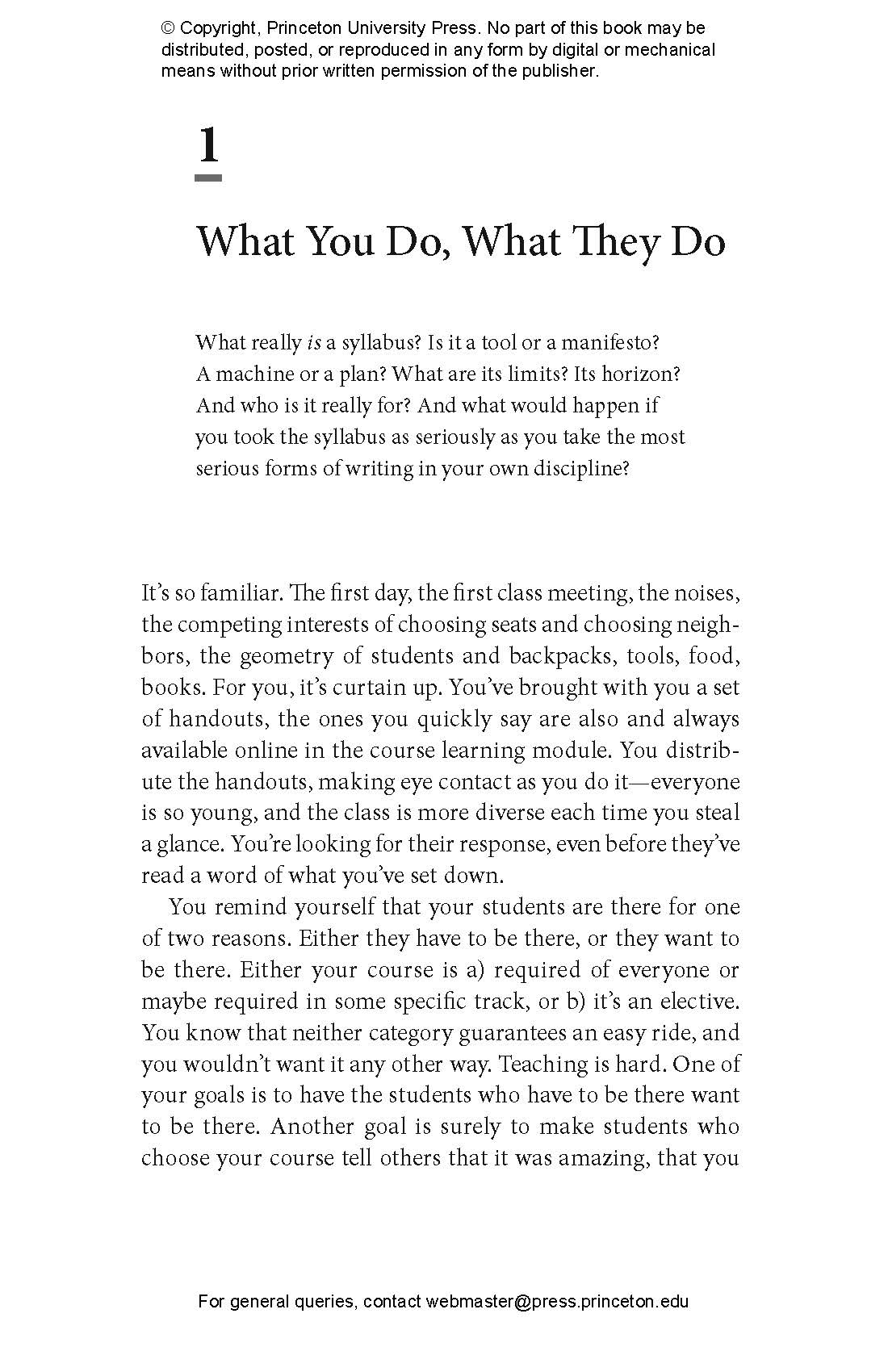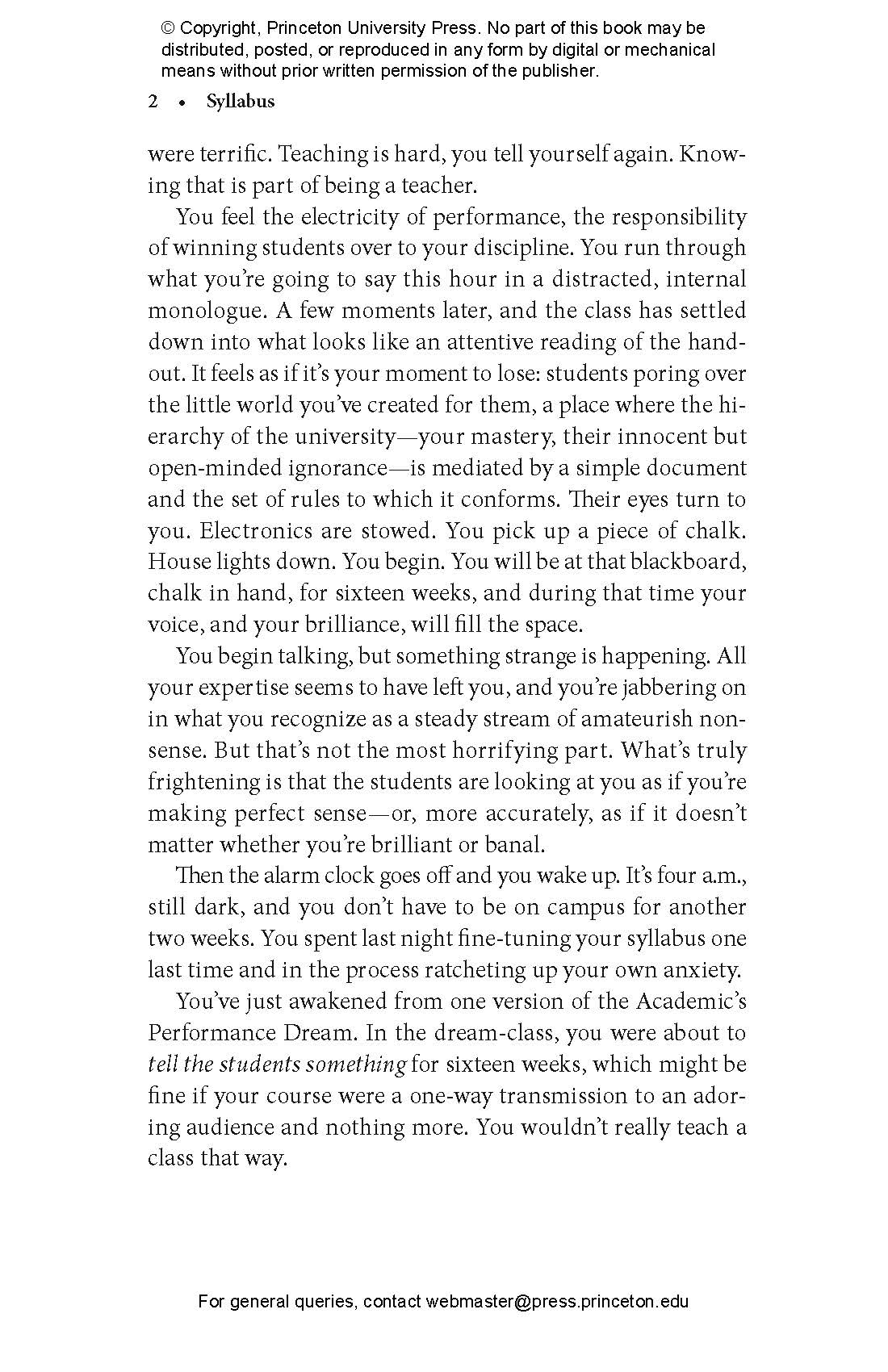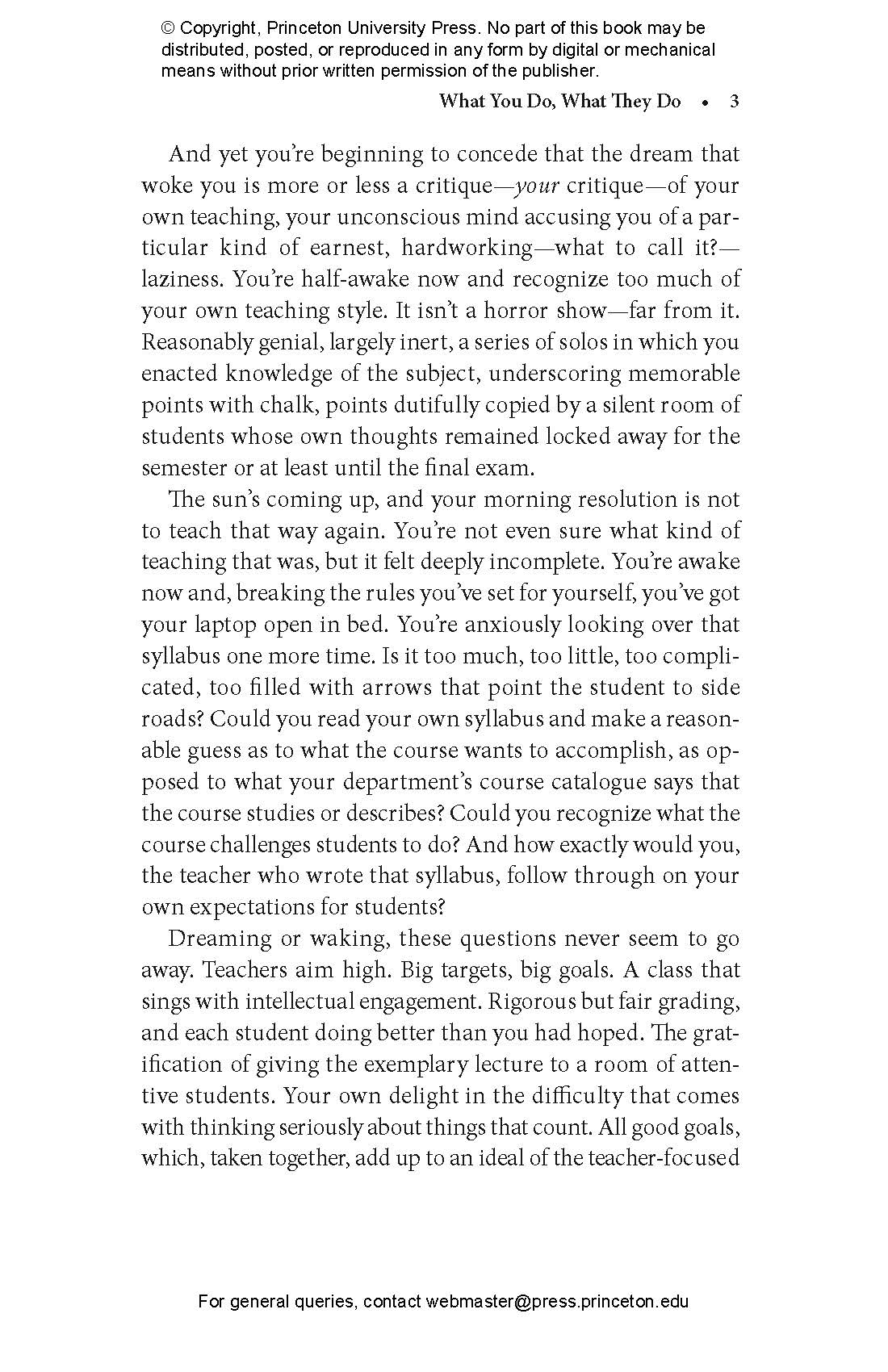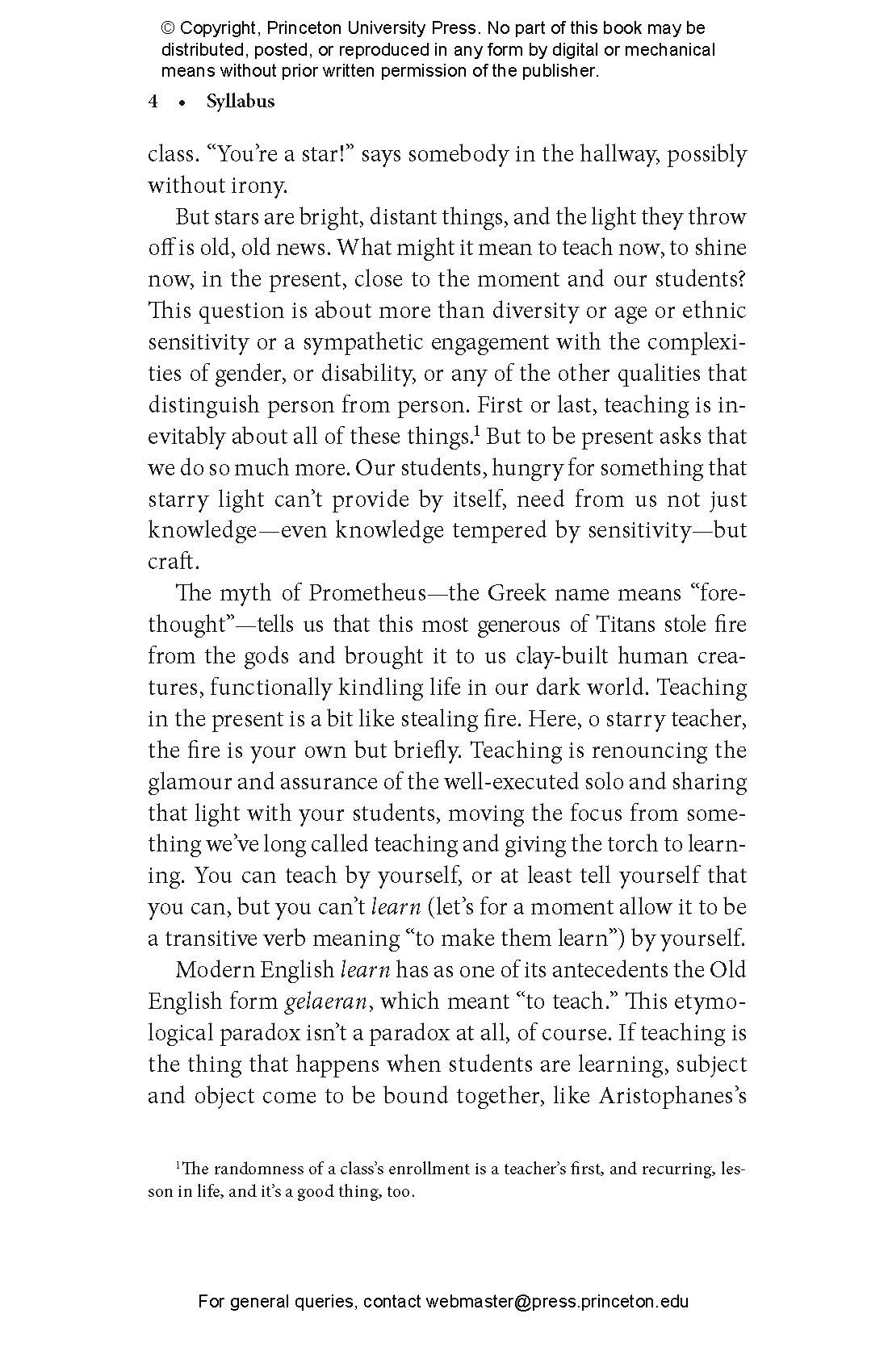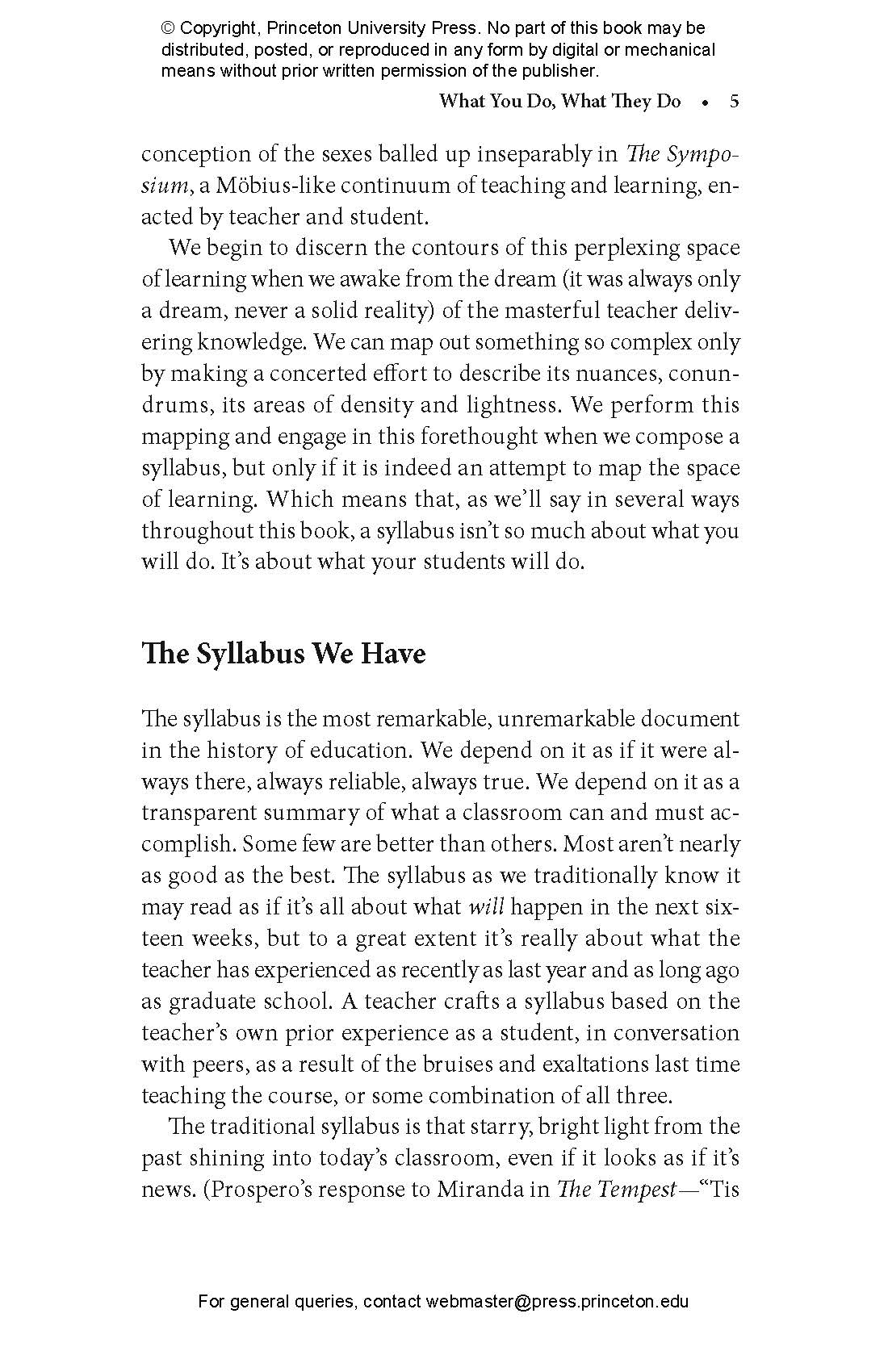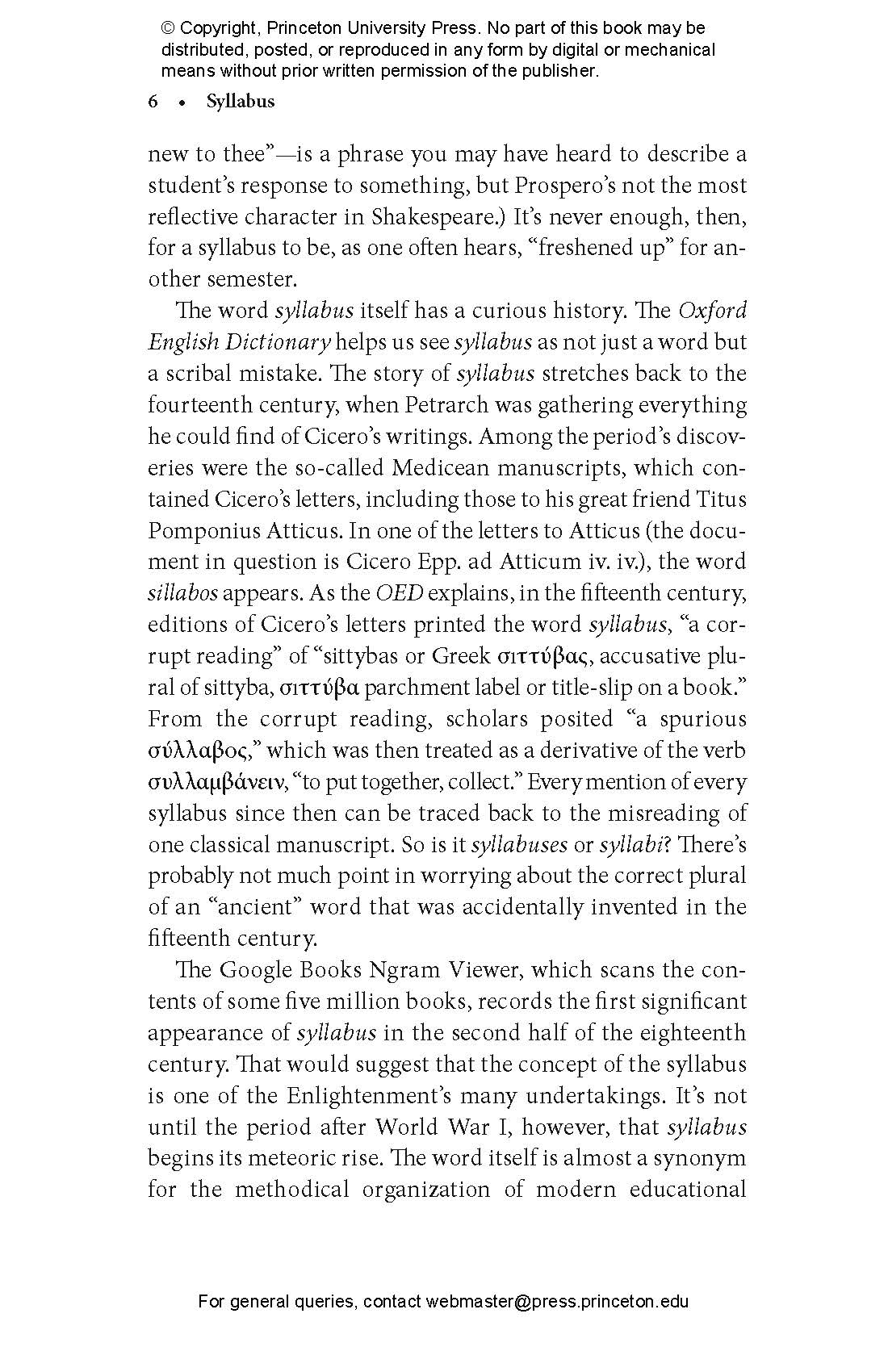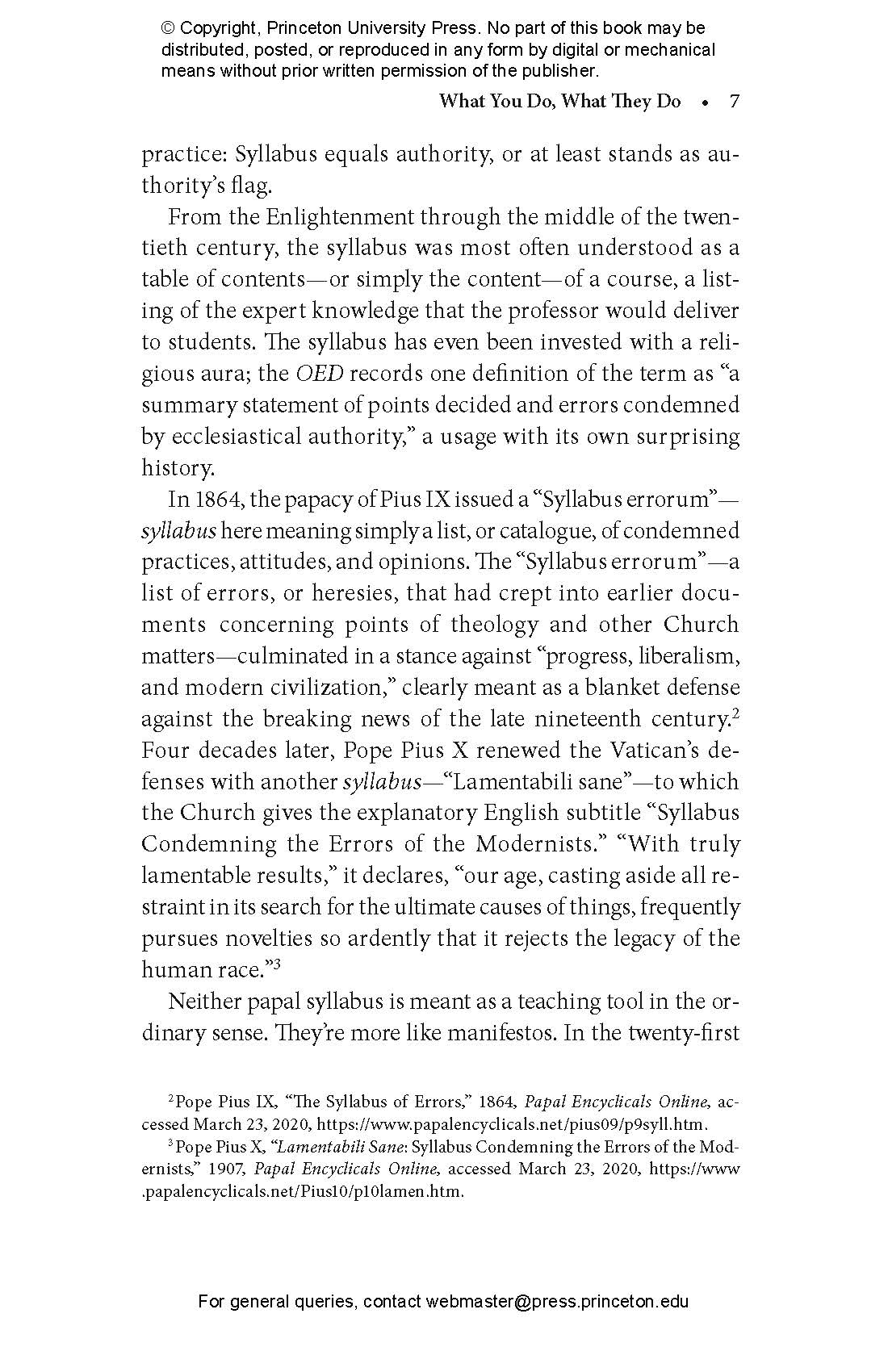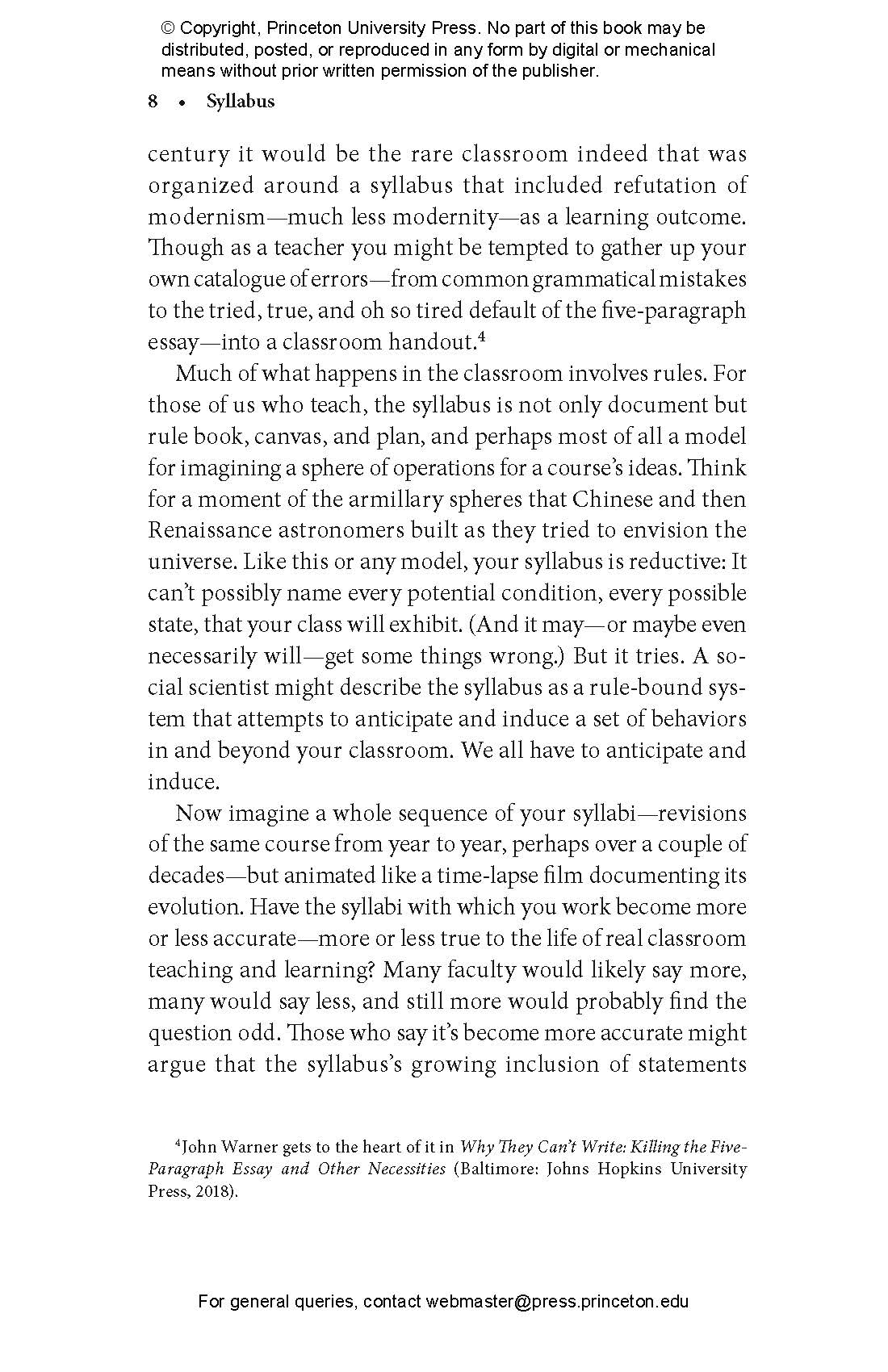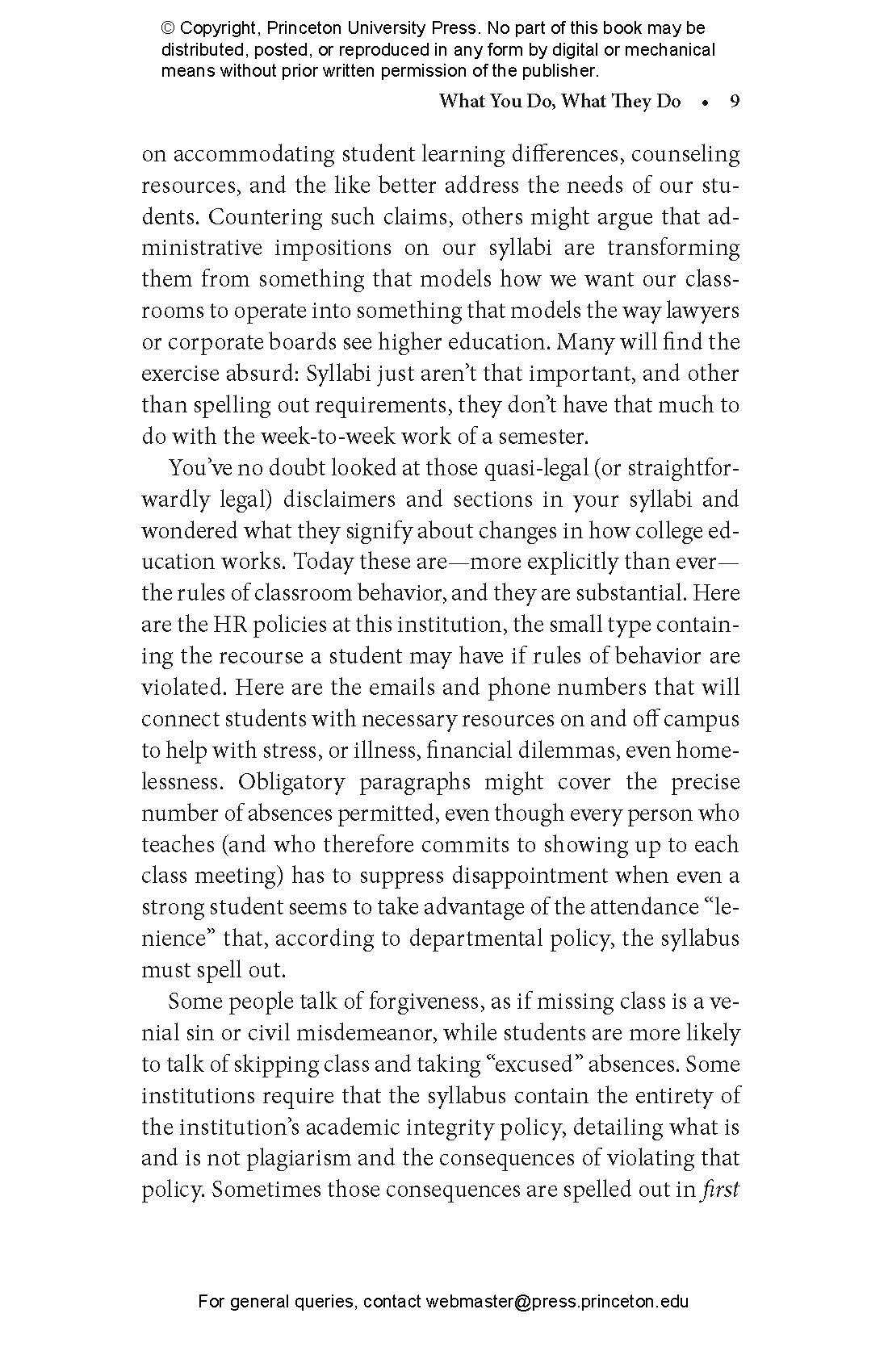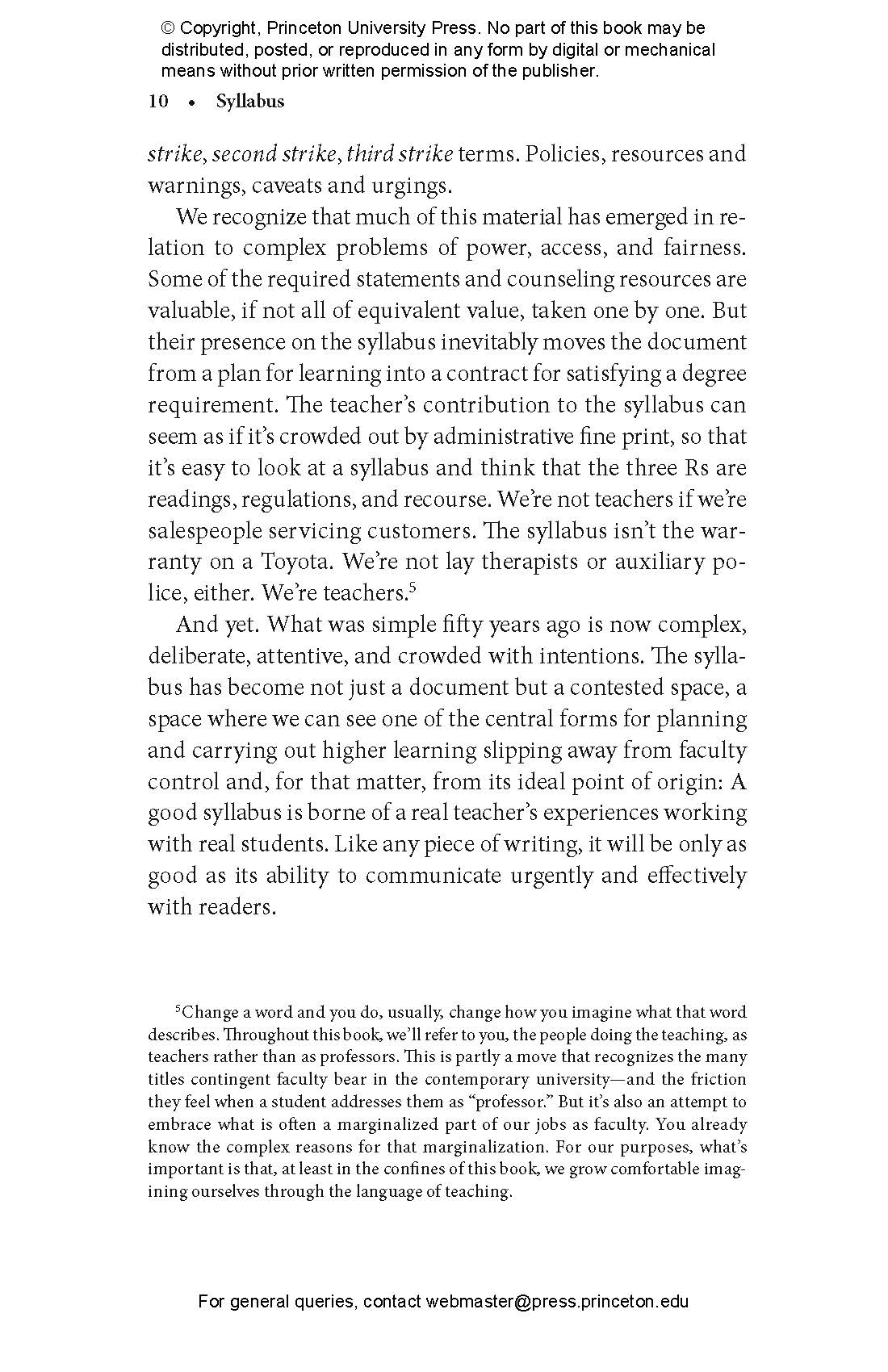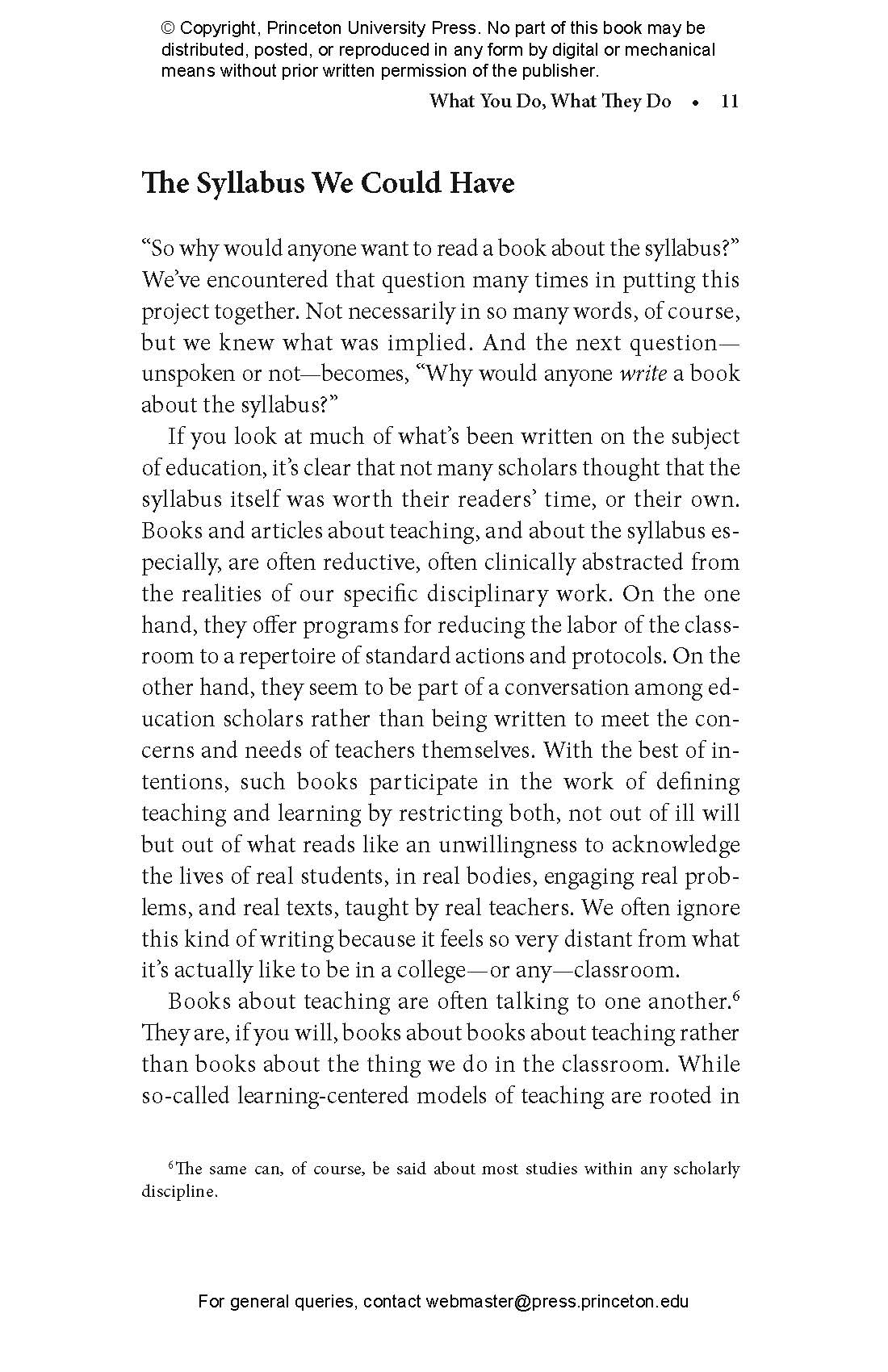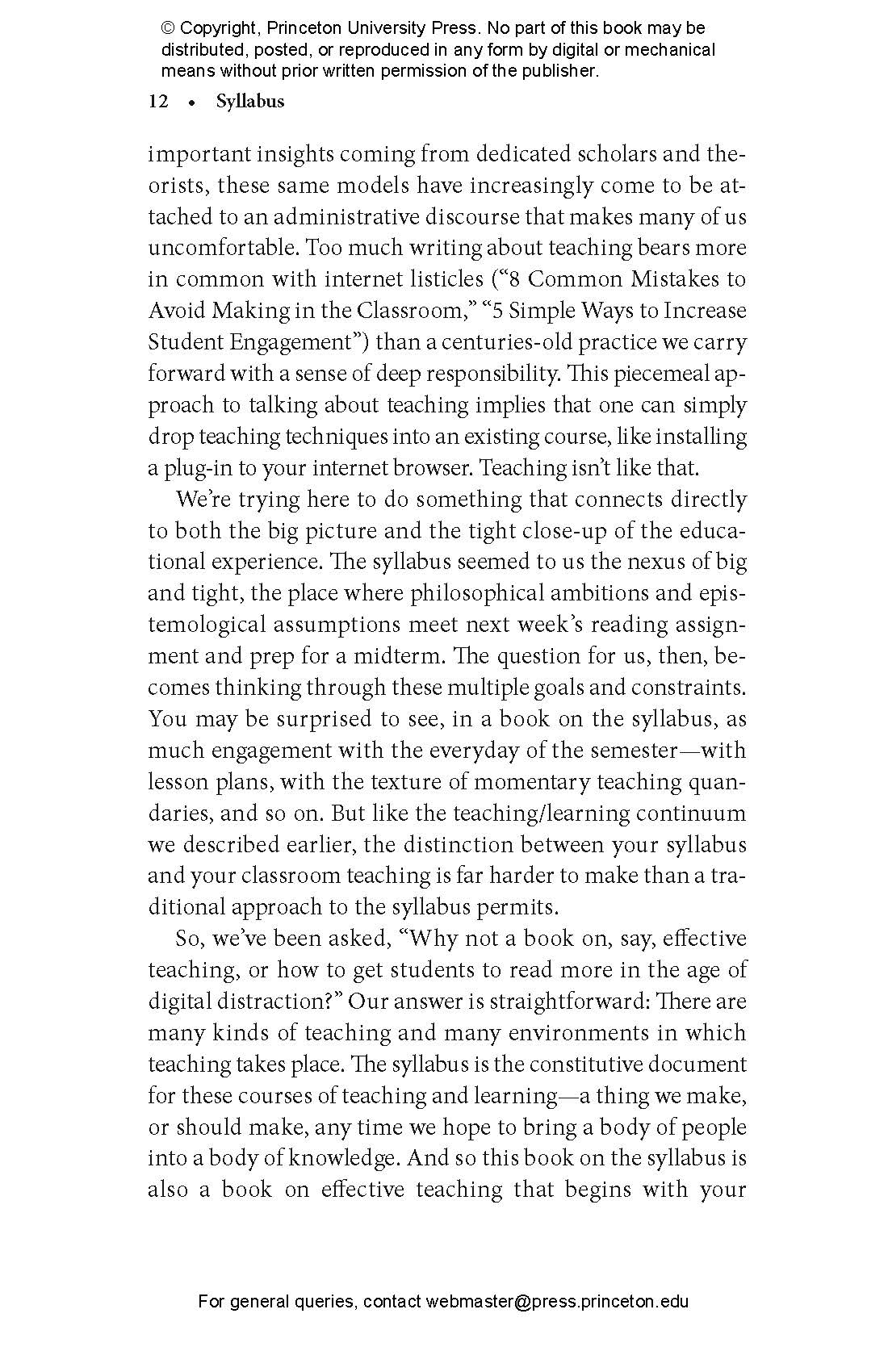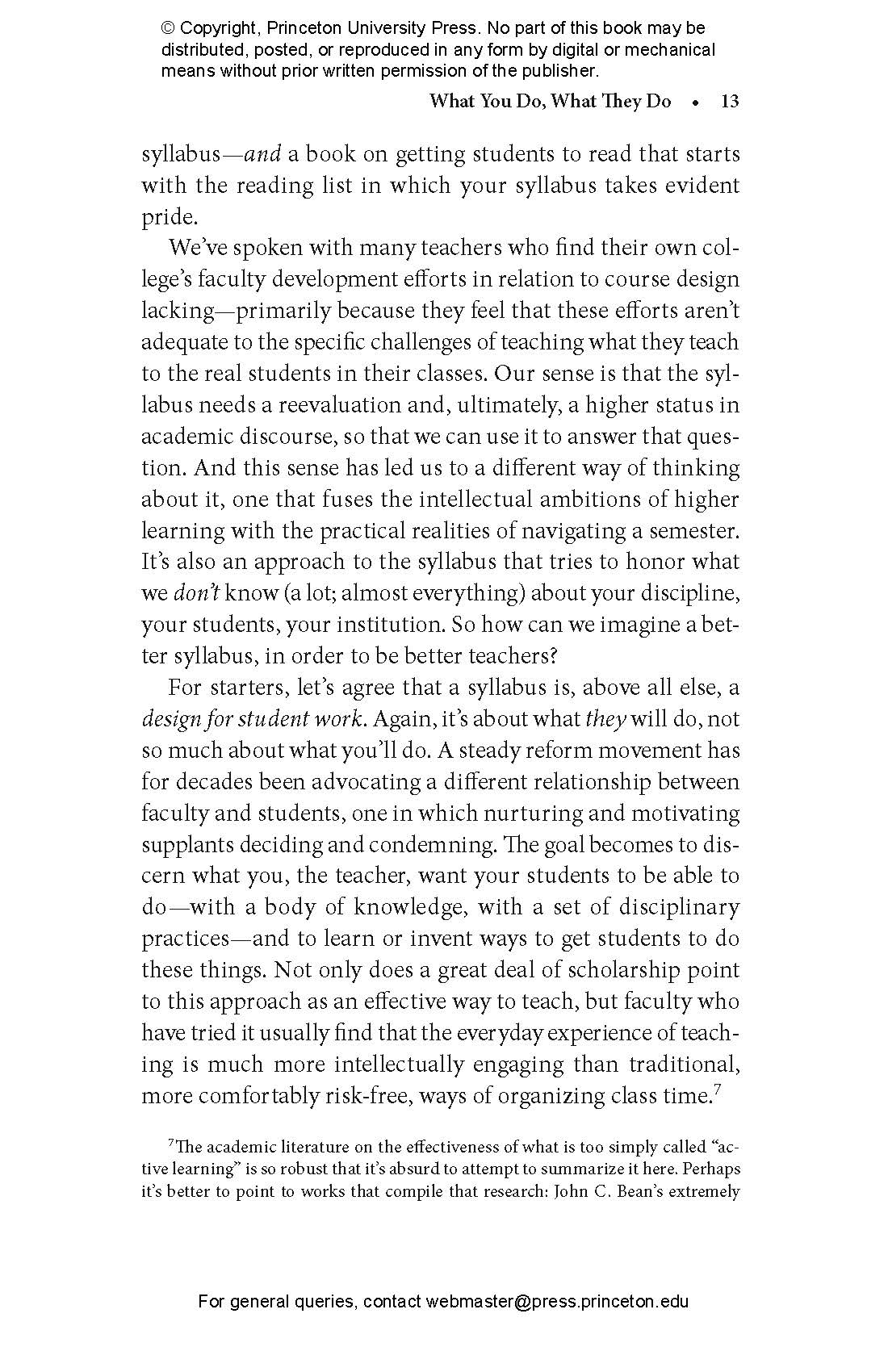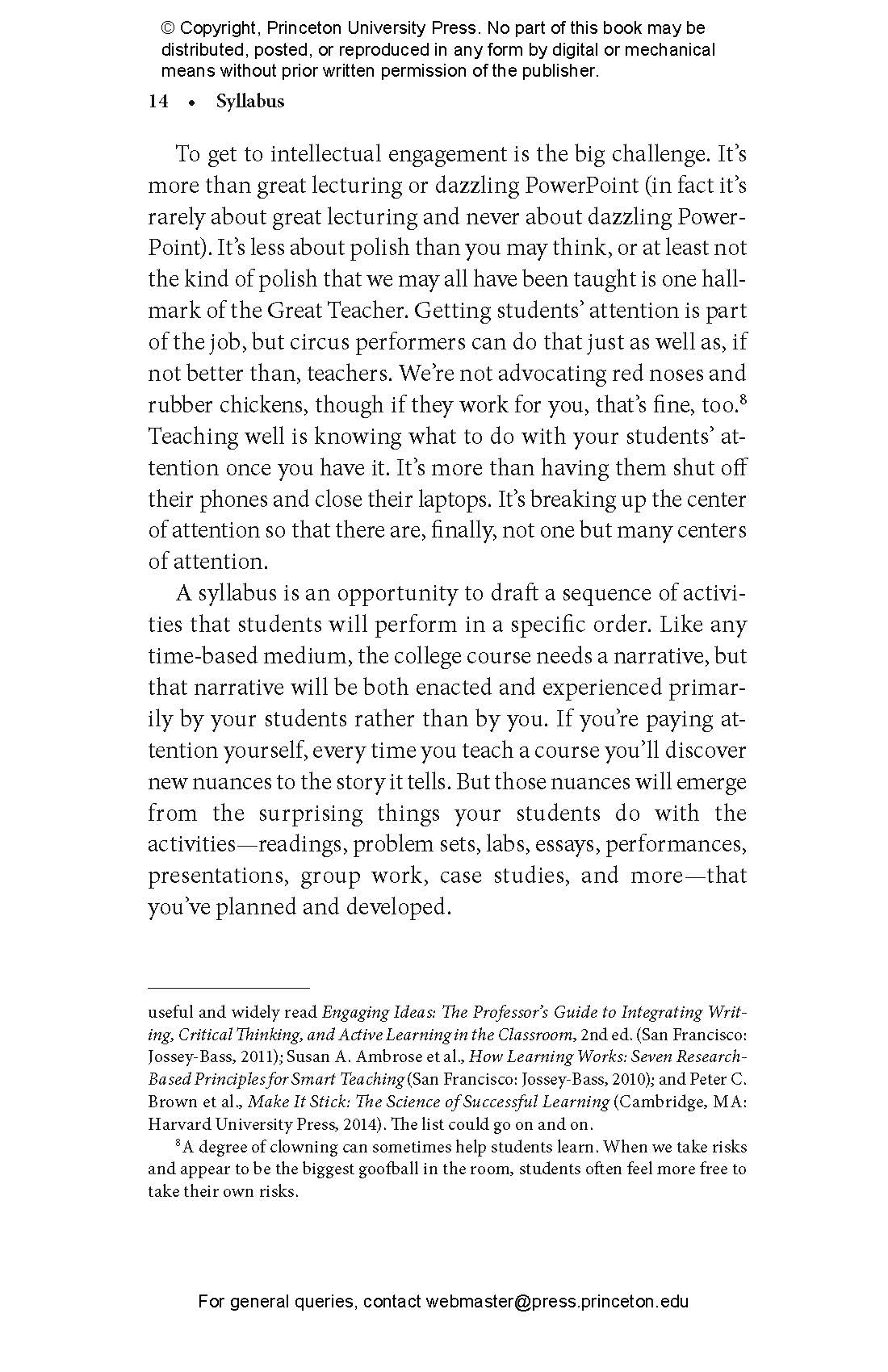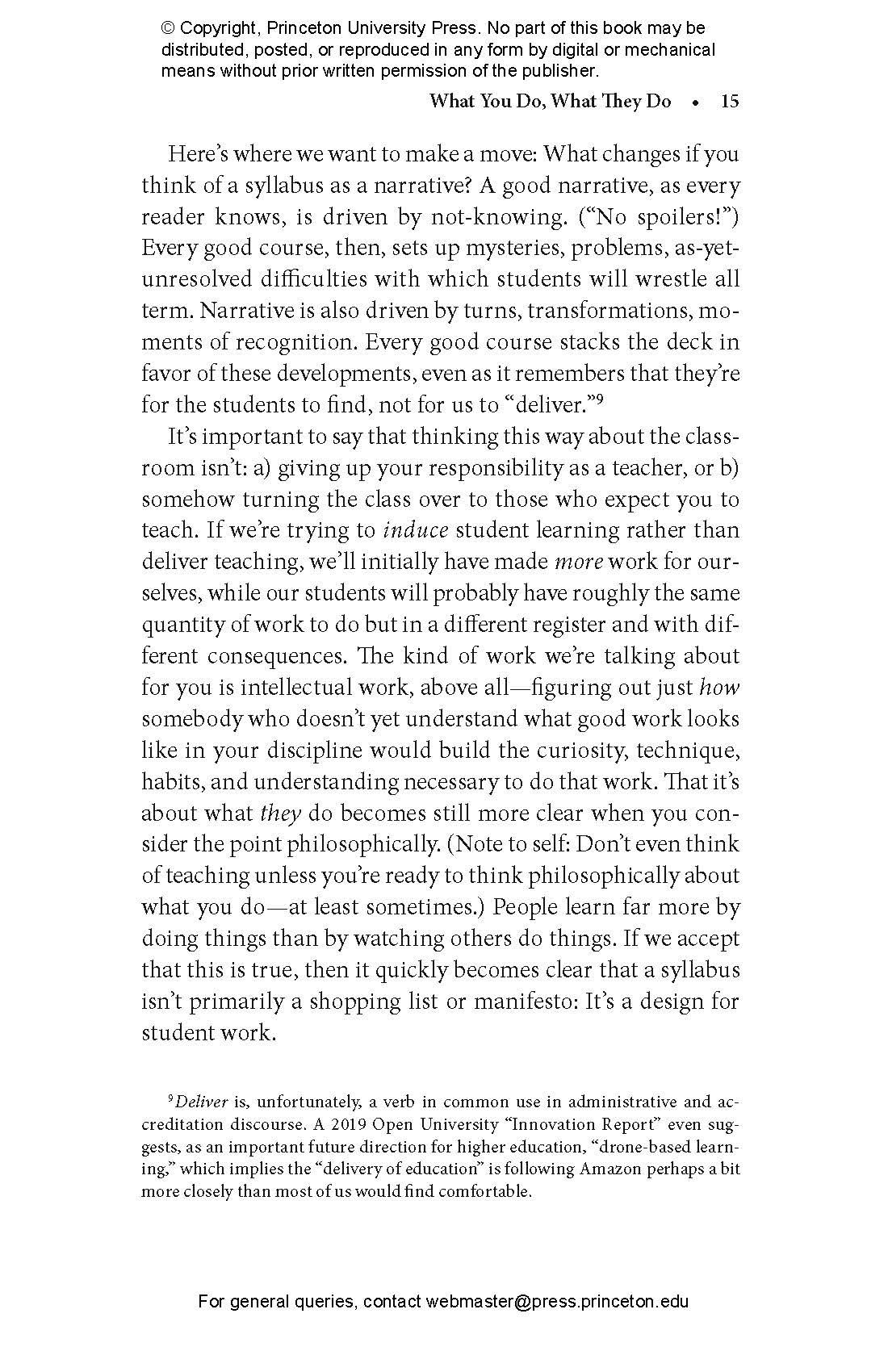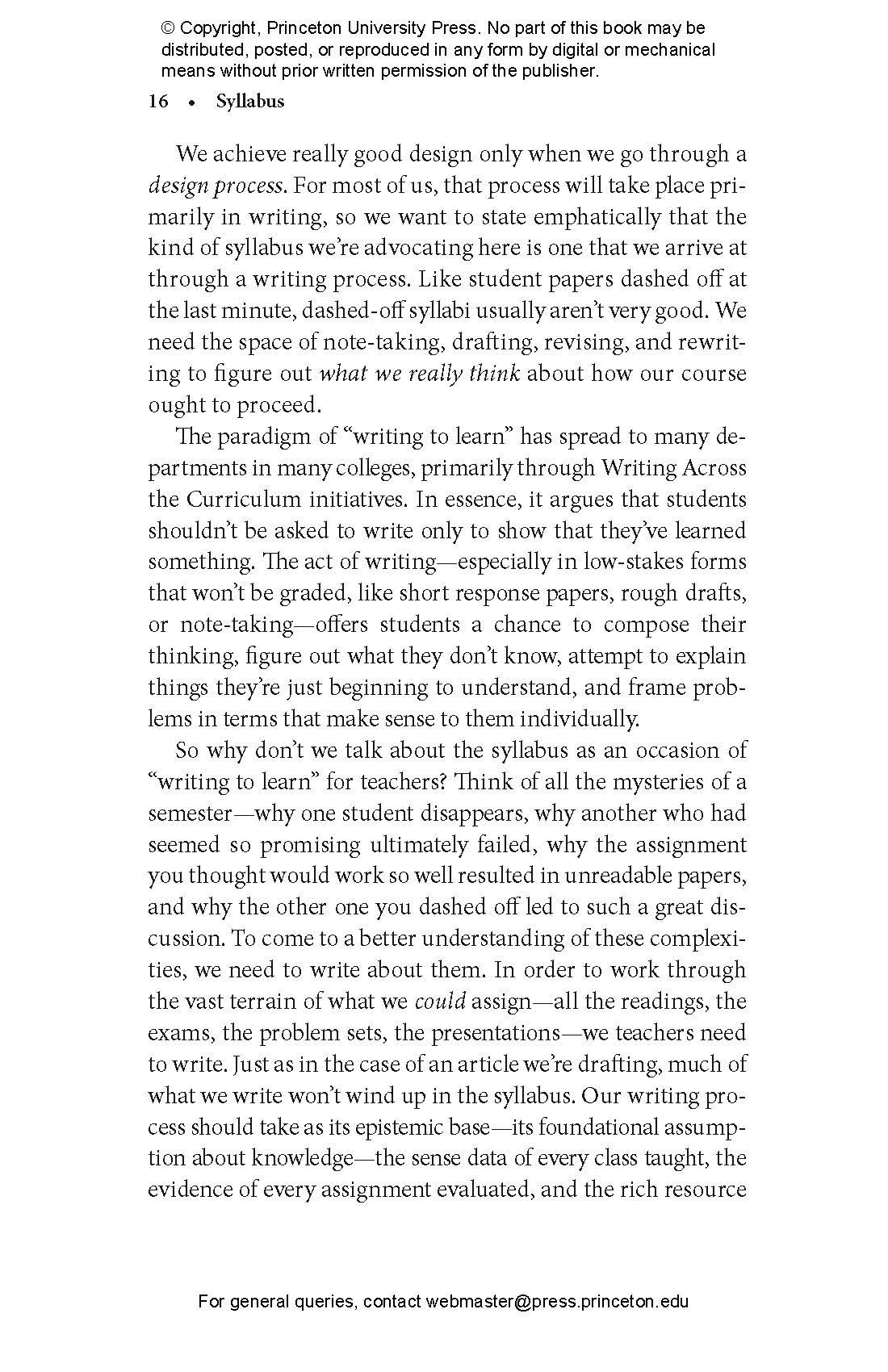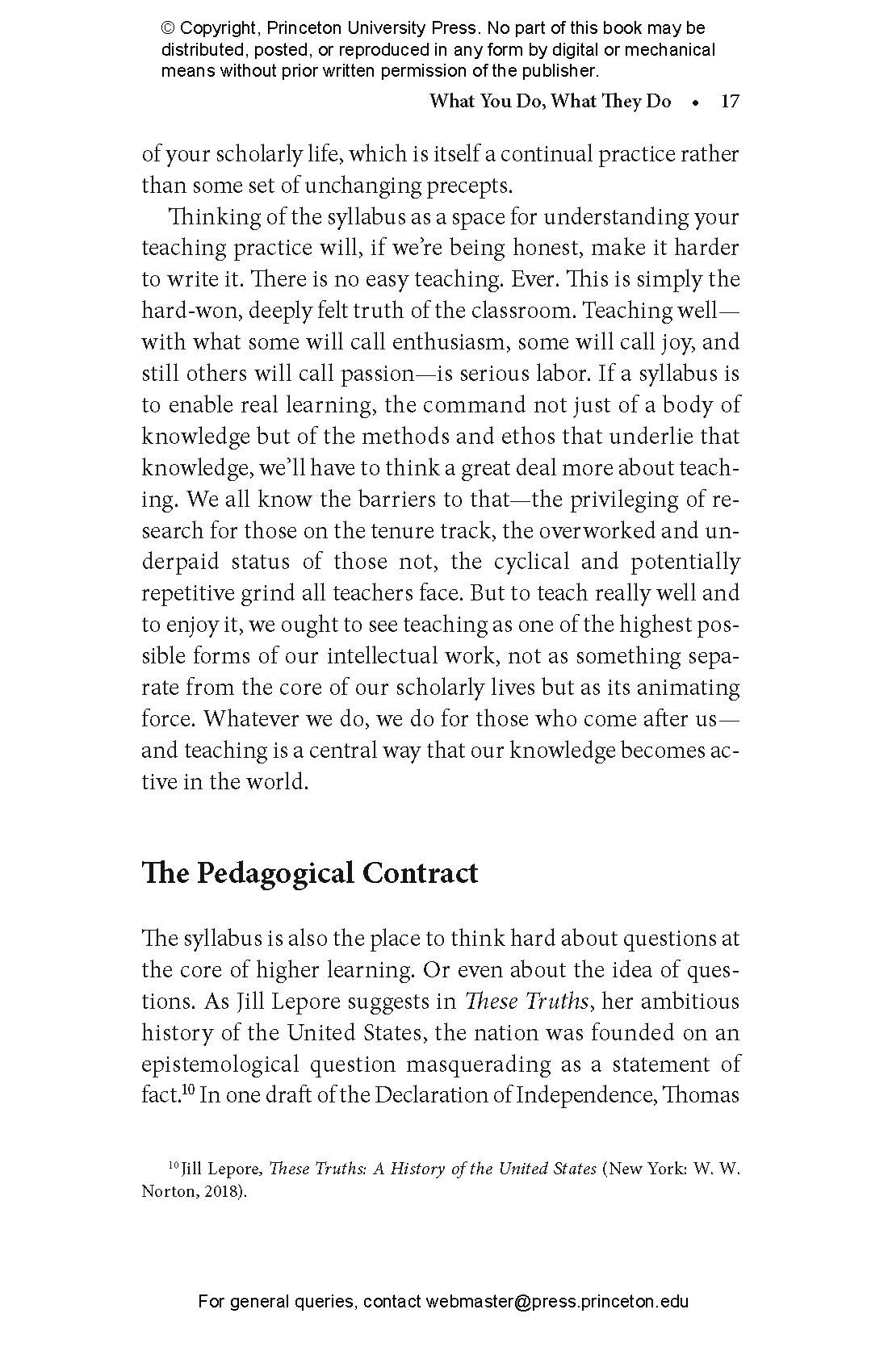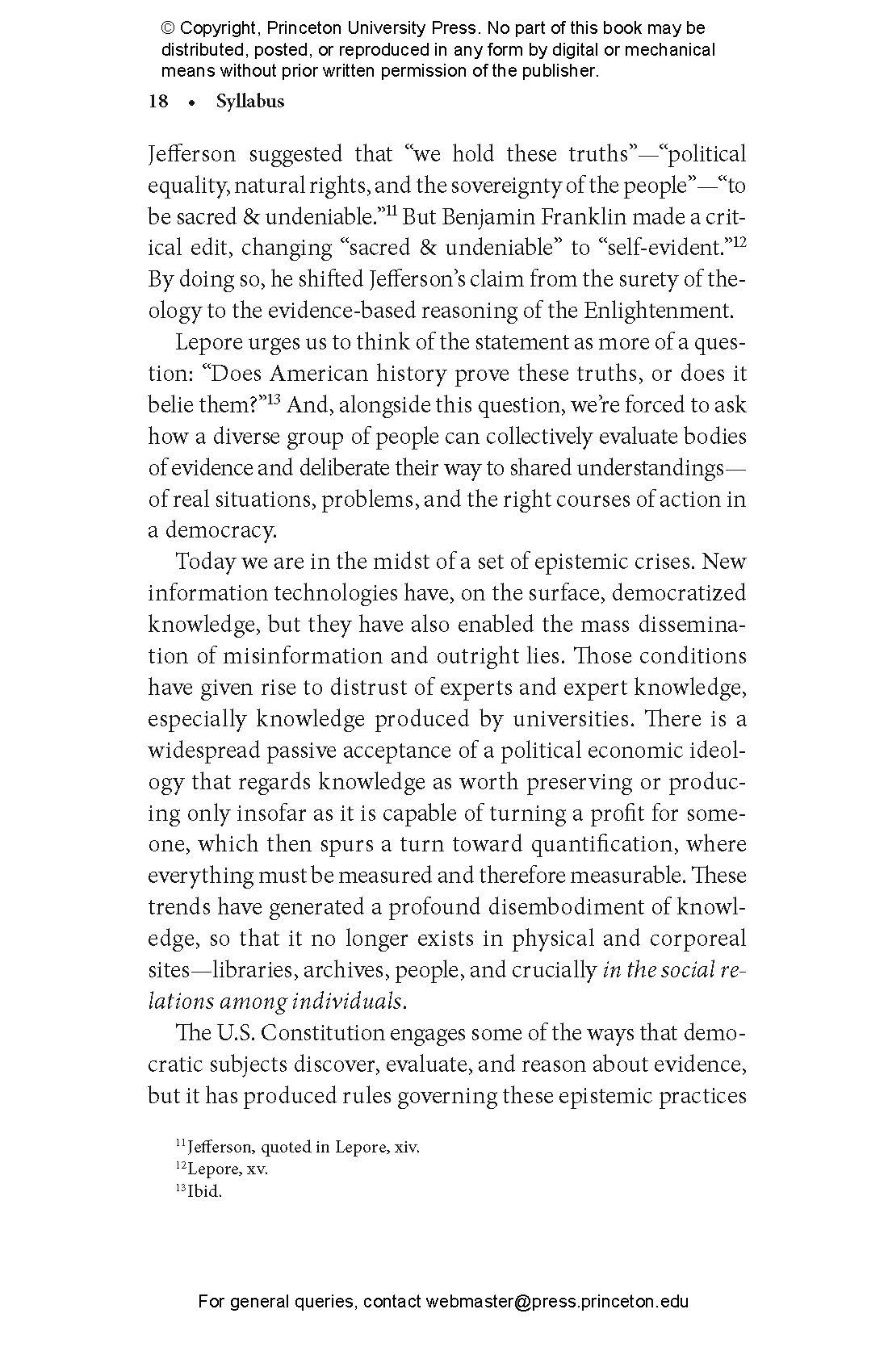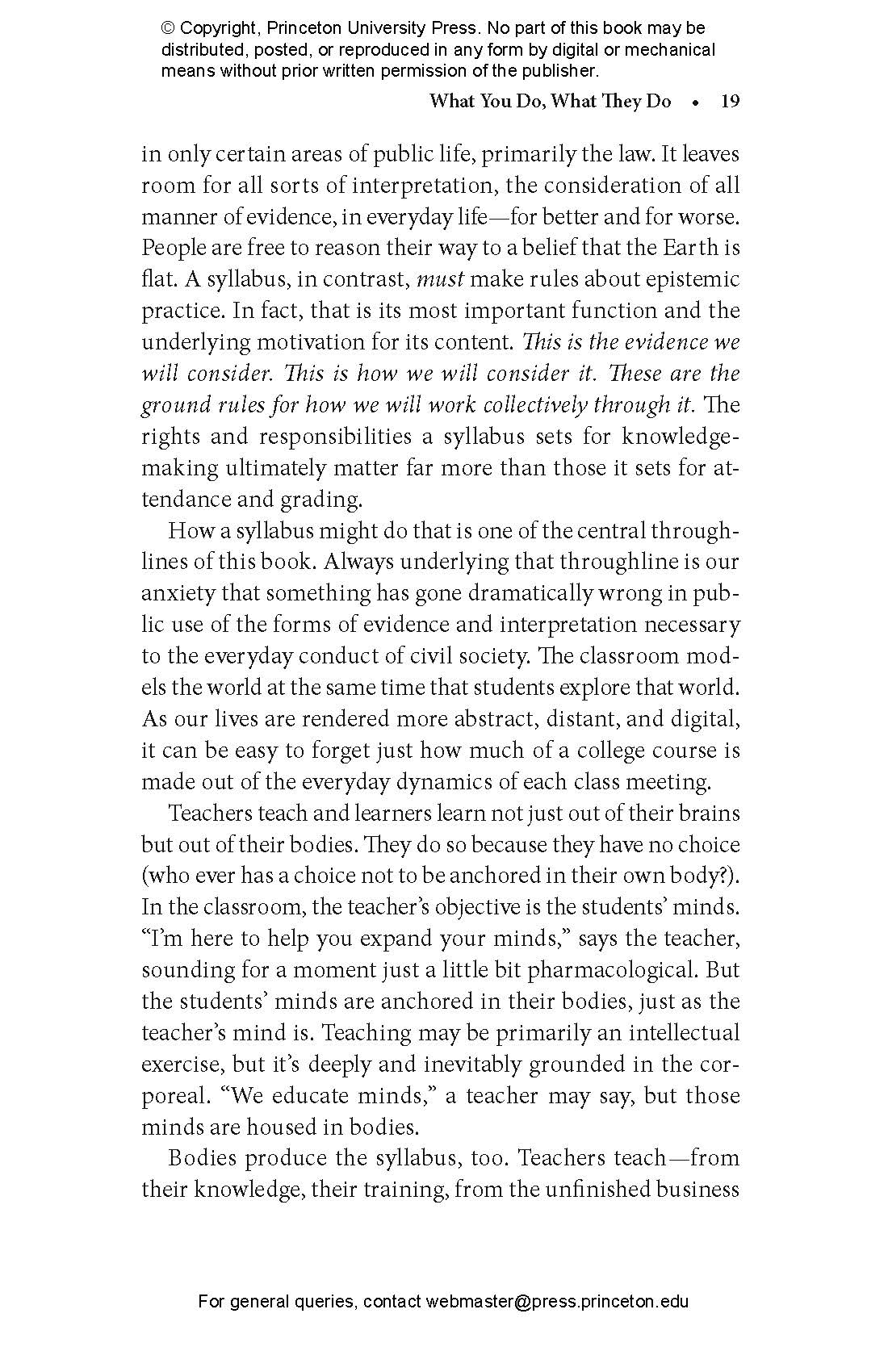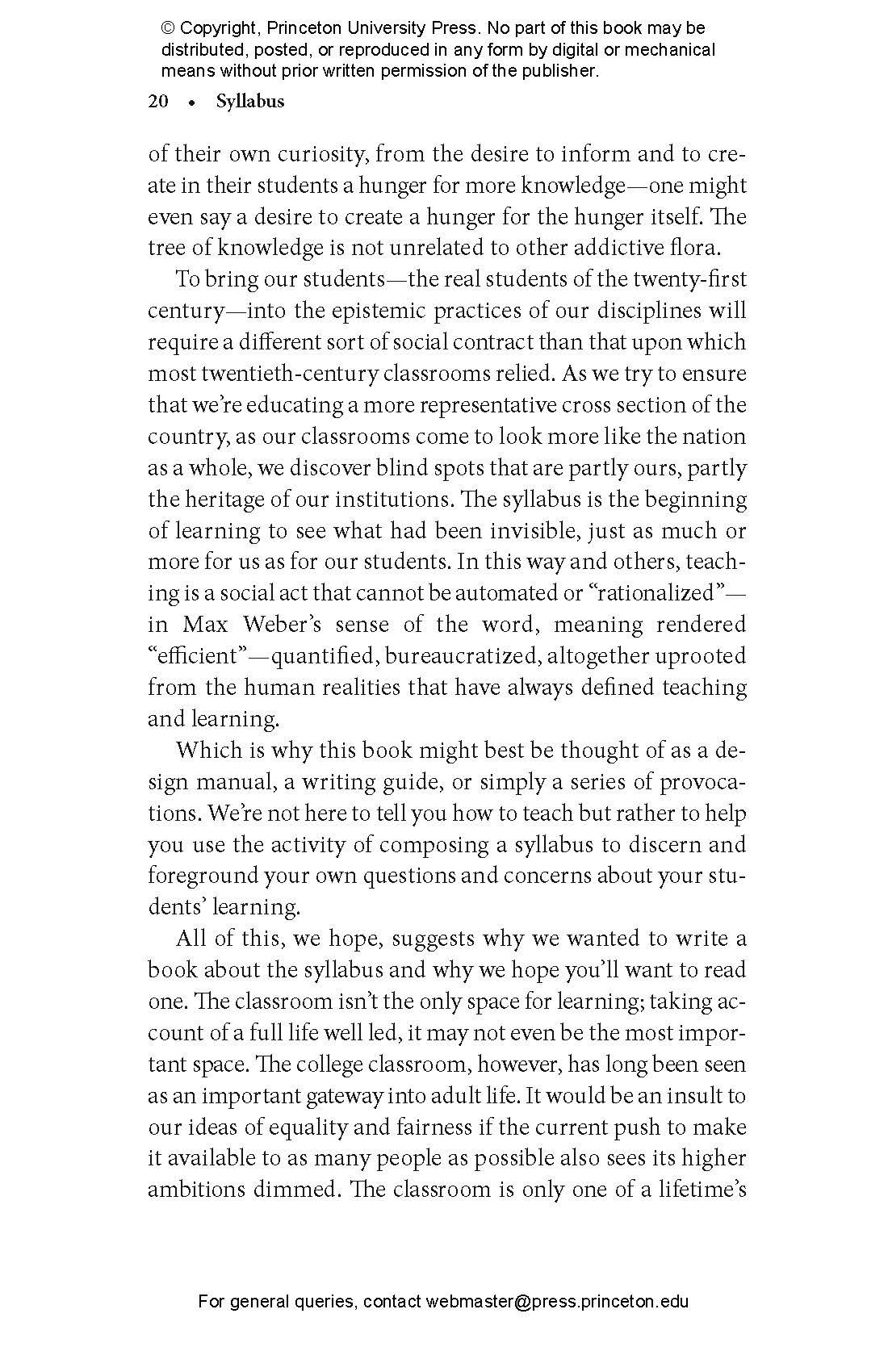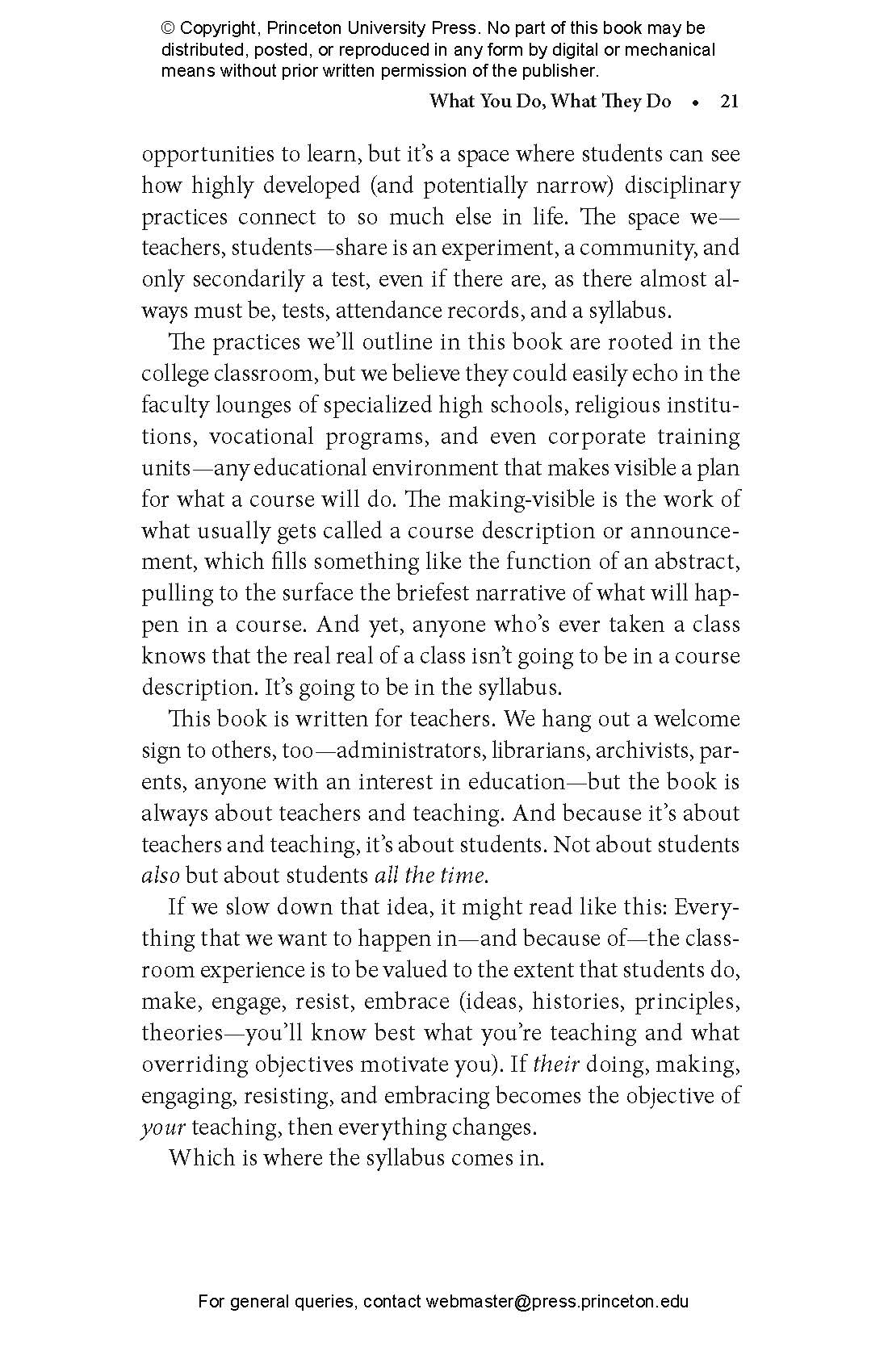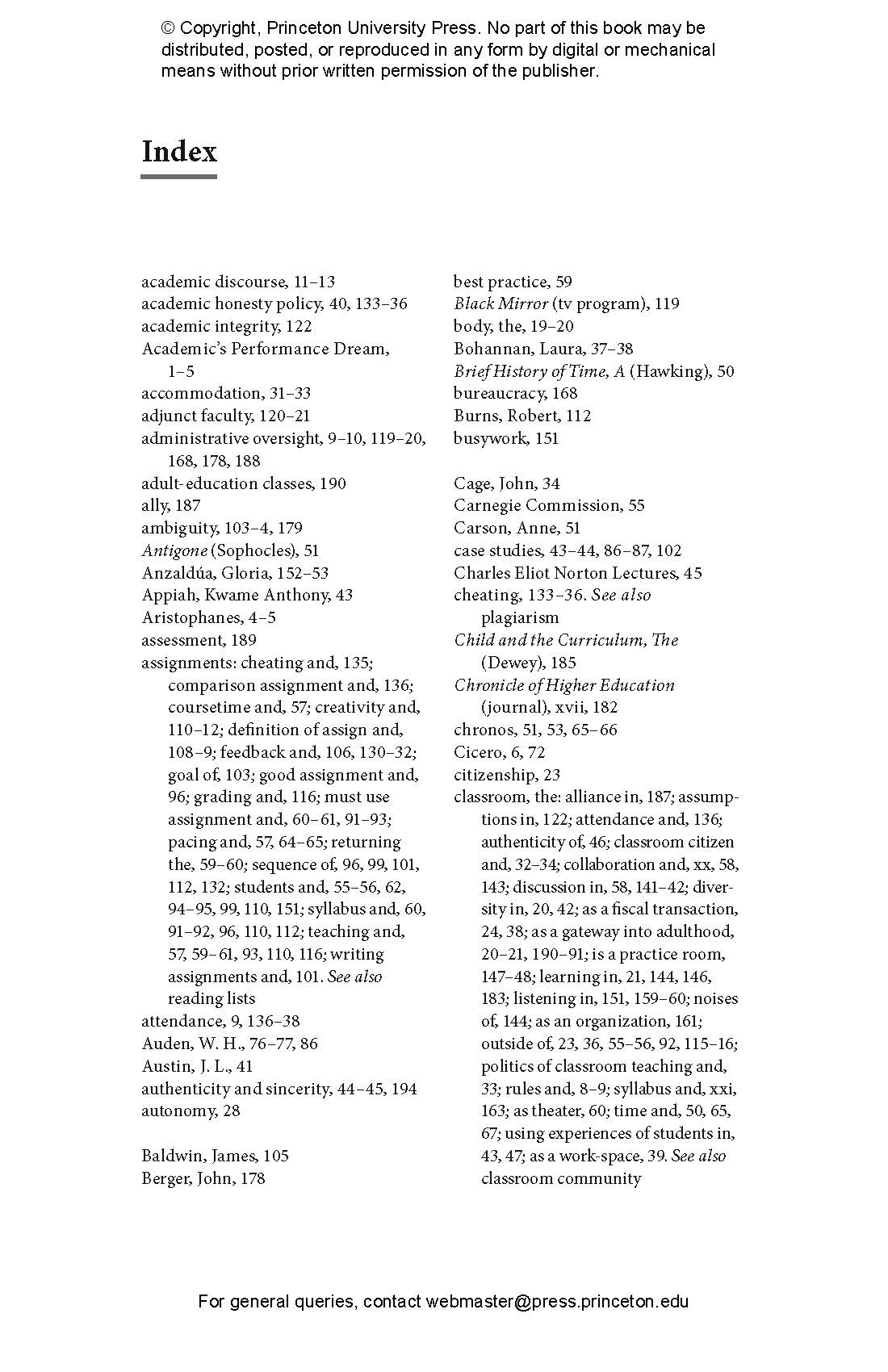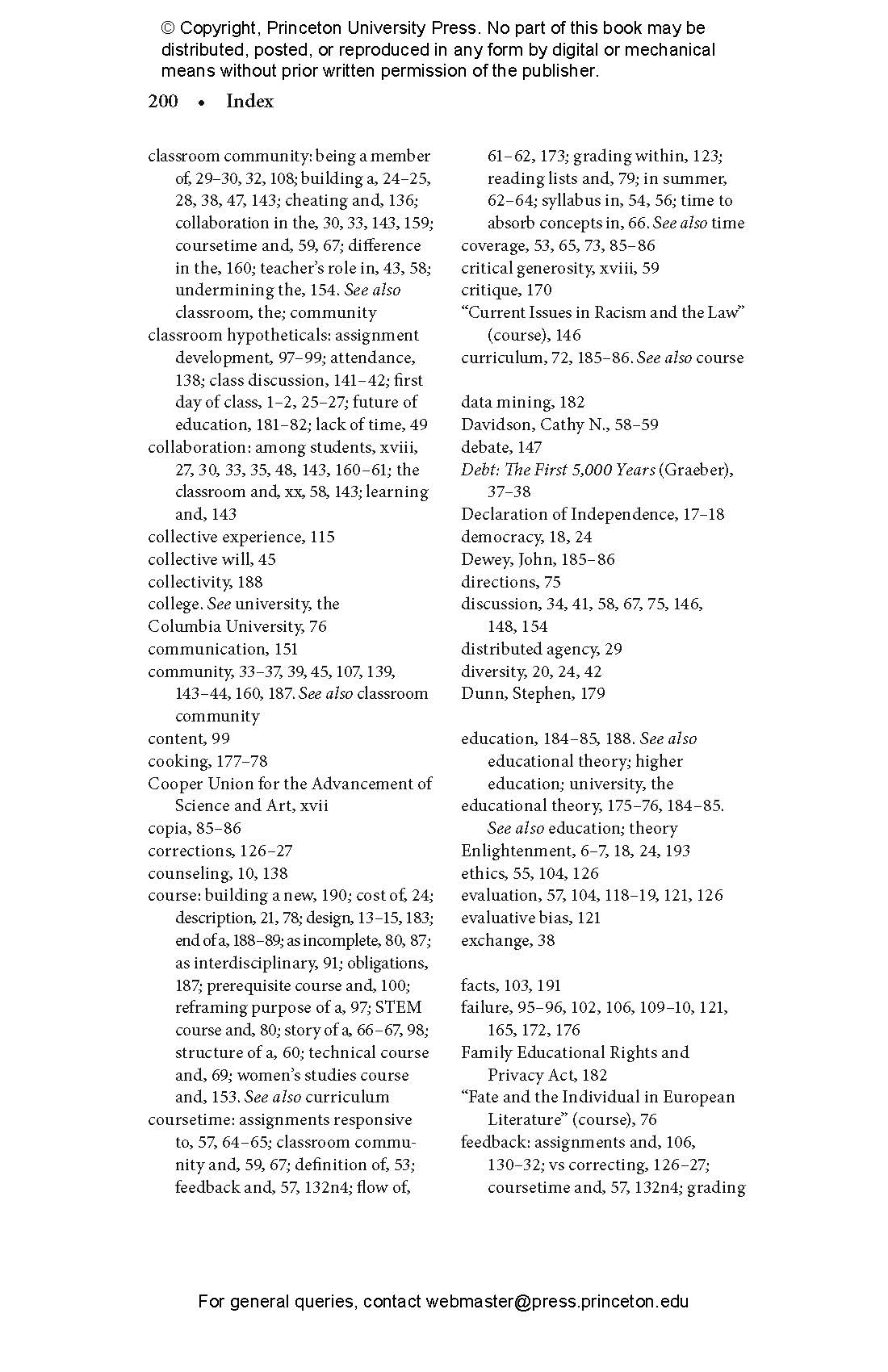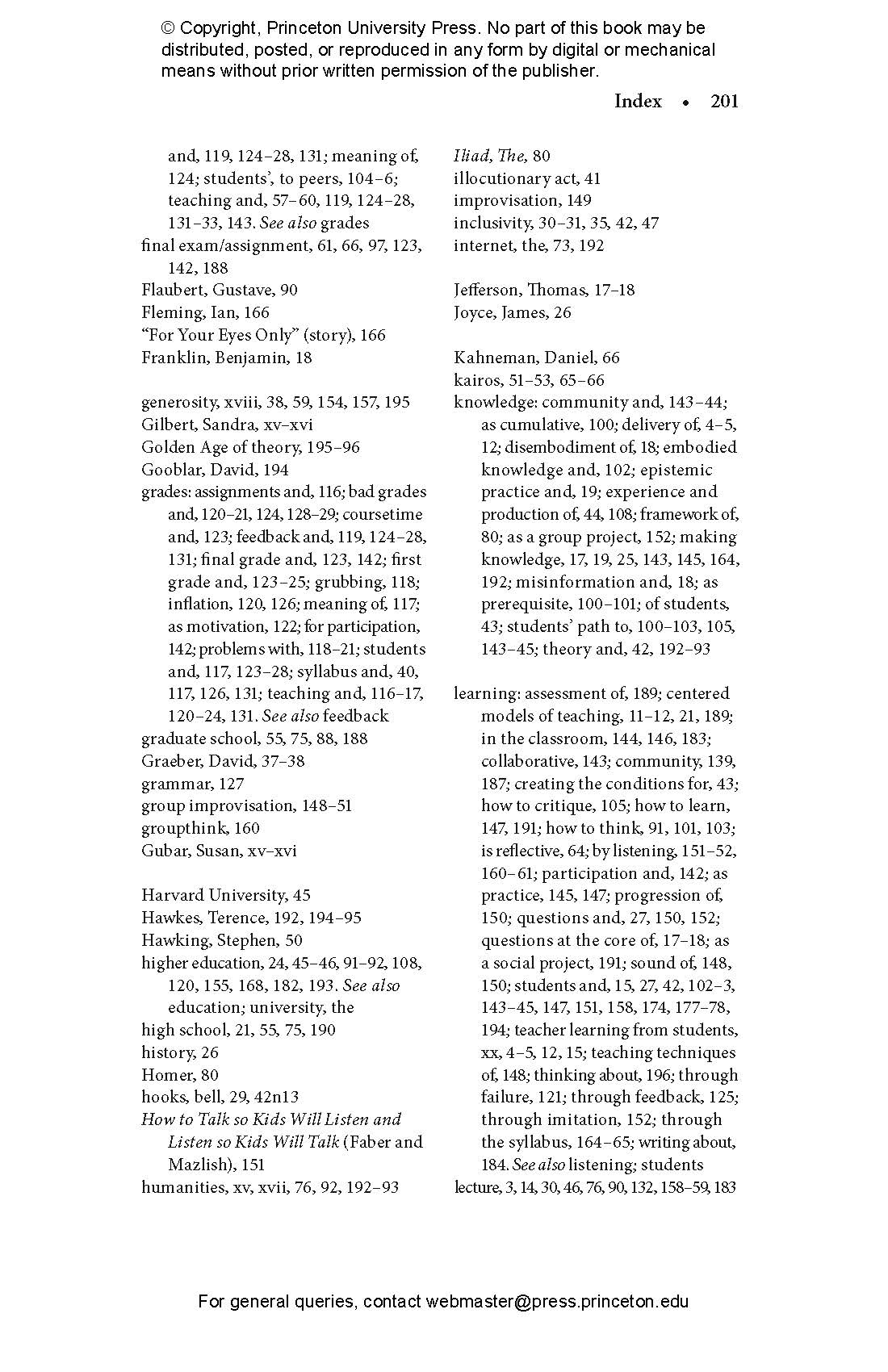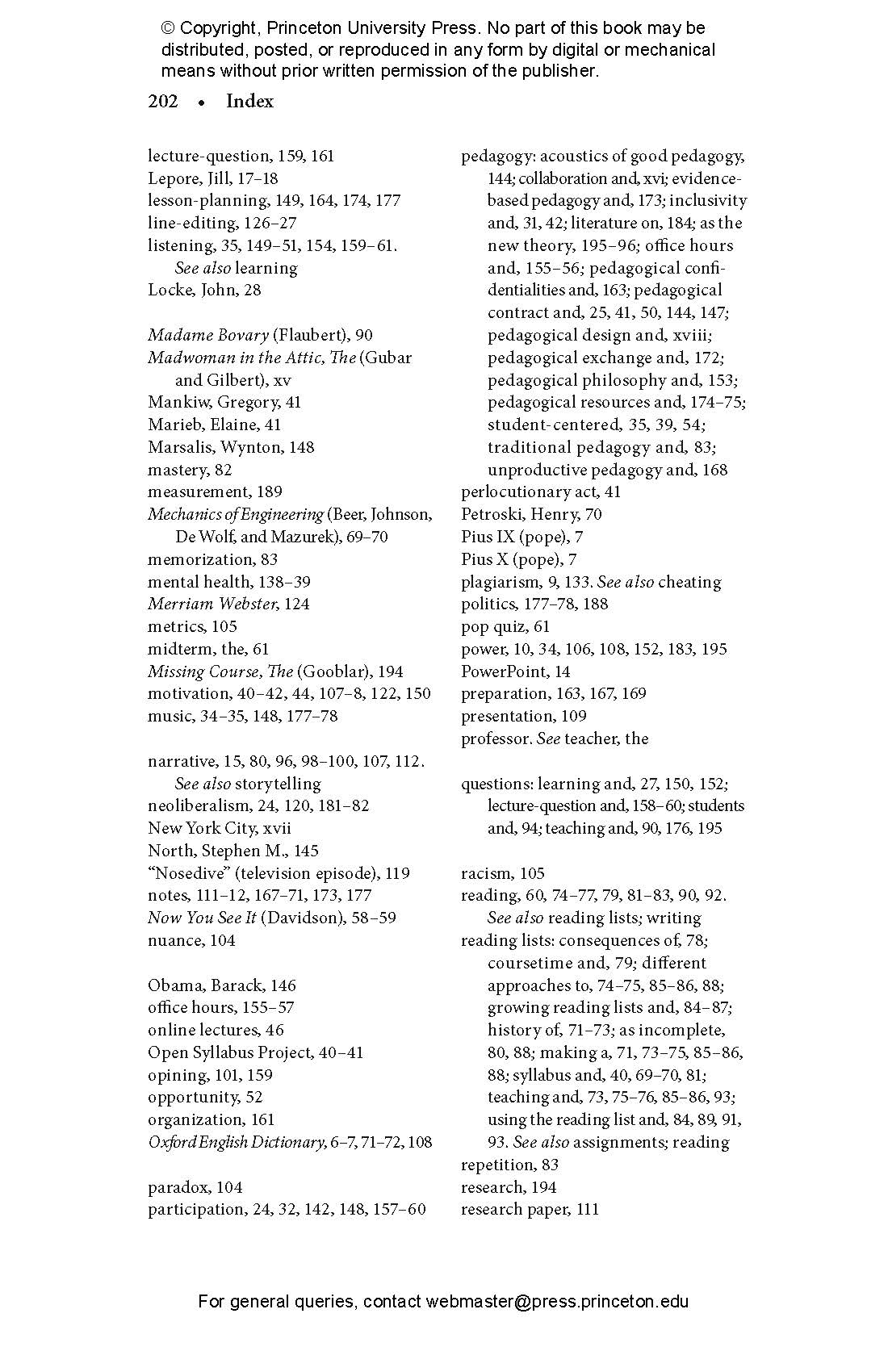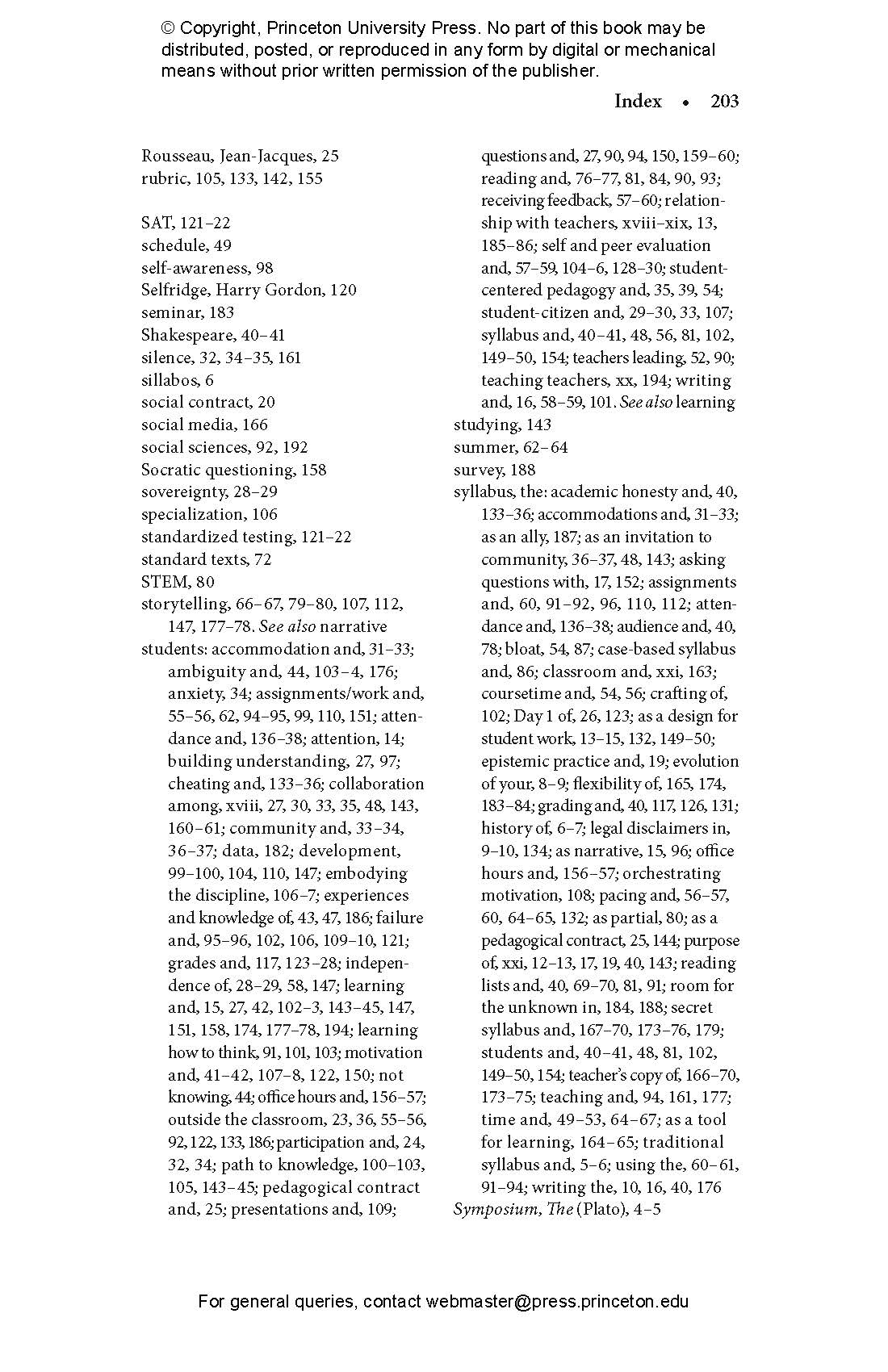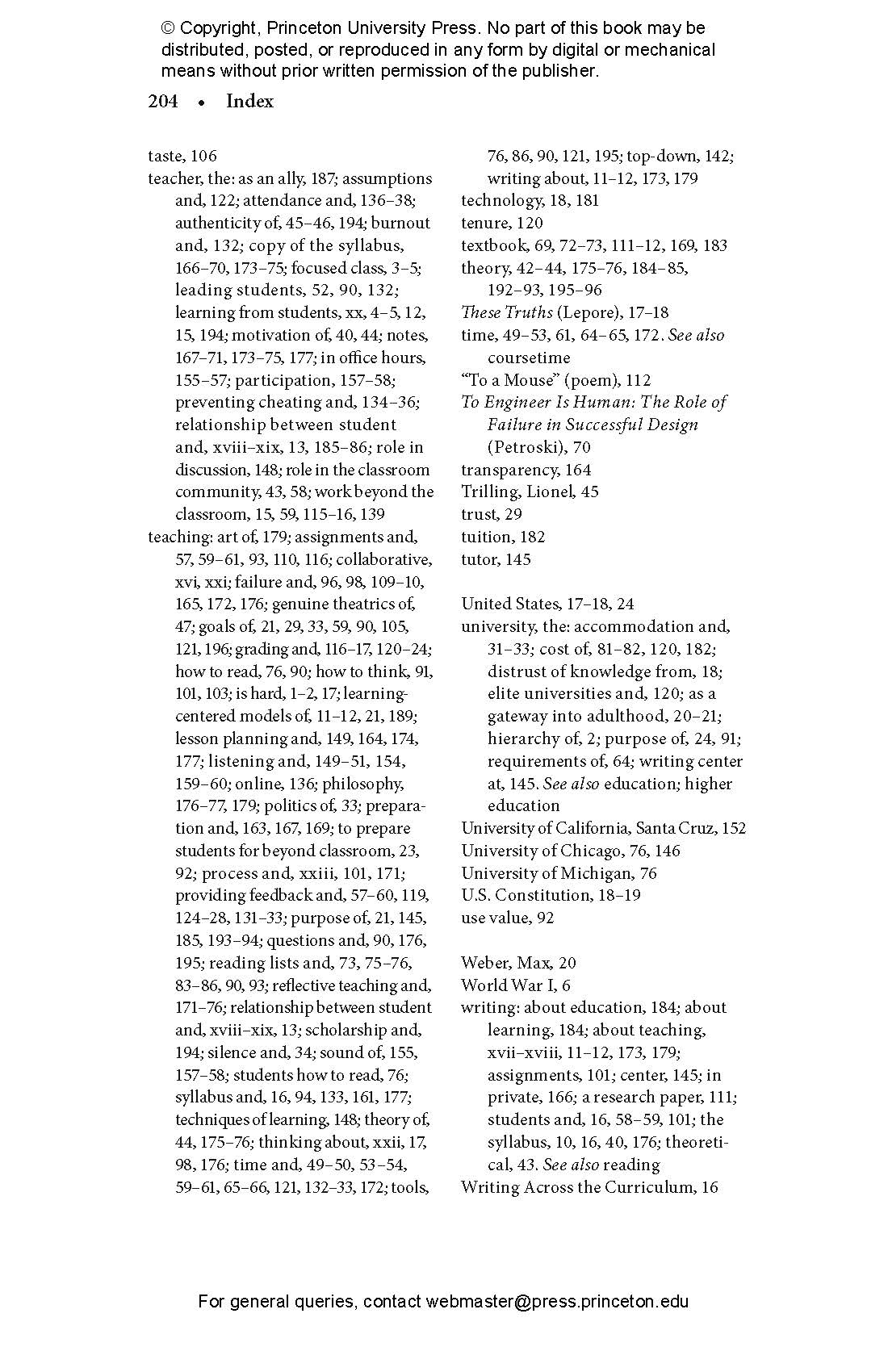Generations of teachers have built their classes around the course syllabus, a semester-long contract that spells out what each class meeting will focus on (readings, problem sets, case studies, experiments), and what the student has to turn in by a given date. But what does that way of thinking about the syllabus leave out—about our teaching and, more importantly, about our students’ learning?
In Syllabus, William Germano and Kit Nicholls take a fresh look at this essential but almost invisible bureaucratic document and use it as a starting point for rethinking what students—and teachers—do. What if a teacher built a semester’s worth of teaching and learning backward—starting from what students need to learn to do by the end of the term, and only then selecting and arranging the material students need to study?
Thinking through the lived moments of classroom engagement—what the authors call “coursetime”—becomes a way of striking a balance between improv and order. With fresh insights and concrete suggestions, Syllabus shifts the focus away from the teacher to the work and growth of students, moving the classroom closer to the genuinely collaborative learning community we all want to create.
"Germano and Nicholls’s gently polemical, deeply romantic book regards the syllabus, and the work that goes into constructing one, as an opportunity to ponder the possibilities and pathways of the classroom. . . . As such, their book is filled with useful insights about teaching and how, under ideal circumstances, what is transferred isn’t a body of knowledge but a kind of ‘craft,’ a way of reading and taking in the world. . . . The authors of Syllabus come across like fantastic and committed teachers."—Hua Hsu, New Yorker
"Germano and Nicholls show how constructing the syllabus can facilitate self-reflection that fuels powerful pedagogy in every subject area. . . . Above all, Syllabus offers prompts for doing the thinking about teaching that will empower readers to create learning communities."—Koritha Mitchell, Public Books
"An inspiring exhortation to make the standard college syllabus work harder and better. . . . A thoughtful, provocative collection of well-tested teaching strategies and philosophies that work across the curriculum."—Kirkus, starred review
"A passionate book about teaching well, using the syllabus as a framework within which to discuss how to embark with students on the joint endeavour of learning. I like its philosophy. . . . One for all who value teaching."—Diane Coyle, Enlightened Economist
“A magic box of a book, much bigger on the inside than the outside, unfolding from its one-word title and provocative, playful subtitle into an extended masterclass on the educational principle of learner-centered backward design. Engagingly written and astutely argued, Syllabus belongs on the bookshelf of every teacher who has ever looked ahead to the next semester and asked, ‘Now, where do I begin?’ ”—Helen Sword, author of Stylish Academic Writing
"With humor and compassion, William Germano and Kit Nicholls dissect the document at the nexus of all of the complexities and opportunities of teaching: the humble syllabus. Drawing on a wealth of institutional knowhow, classroom experience, and theoretical expertise, they show that a transformative course need not be an accident—it can be the product of deliberate design. This book is a manual on how to achieve that."—Roosevelt Montás, Columbia University
"The educational world has lately seen a sustained effort to change the way we think about teaching: from focusing on what teachers do to what students actually learn. This book should become the essential guide for this effort."—Gerald Graff and Cathy Birkenstein, authors of They Say/I Say: The Moves That Matter in Academic Writing
“This excellent and invigorating book helped me remember yet again what a wondrous calling teaching is. It is also a reminder that teaching is a subject worthy of the most serious thought.”—David Gooblar, author of The Missing Course: Everything They Never Taught You about College Teaching
“Syllabus is required reading for any academic interested in the history of our profession—and its future.”—Cathy N. Davidson, author of The New Education: How to Revolutionize the University to Prepare Students for a World in Flux
“New, inventive, and refreshing, Syllabus will give teachers the inspiration and perspective needed to reimagine and improve their classes.”—Monica Linden, Brown University
